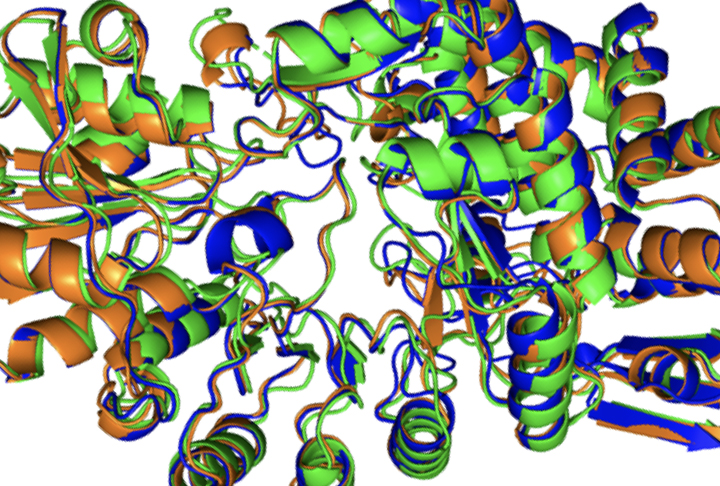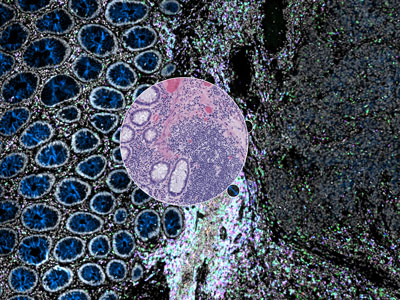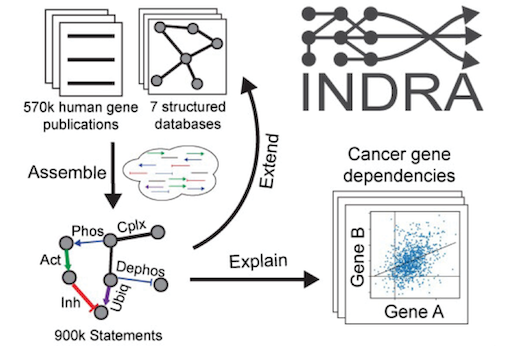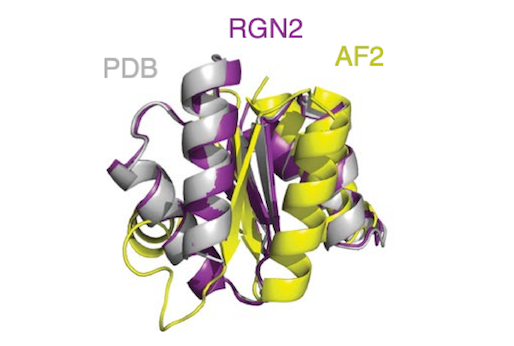Related Publications
Predictive and Prognostic Models
2576724
IXMHRBF6
predictive models
1
apa-cv
50
date
desc
1
1
4121
https://labsyspharm.org/wp-content/plugins/zotpress/
%7B%22status%22%3A%22success%22%2C%22updateneeded%22%3Afalse%2C%22instance%22%3Afalse%2C%22meta%22%3A%7B%22request_last%22%3A0%2C%22request_next%22%3A0%2C%22used_cache%22%3Atrue%7D%2C%22data%22%3A%5B%7B%22key%22%3A%22VSPLVMKA%22%2C%22library%22%3A%7B%22id%22%3A2576724%7D%2C%22meta%22%3A%7B%22lastModifiedByUser%22%3A%7B%22id%22%3A9036456%2C%22username%22%3A%22jtefft%22%2C%22name%22%3A%22%22%2C%22links%22%3A%7B%22alternate%22%3A%7B%22href%22%3A%22https%3A%5C%2F%5C%2Fwww.zotero.org%5C%2Fjtefft%22%2C%22type%22%3A%22text%5C%2Fhtml%22%7D%7D%7D%2C%22creatorSummary%22%3A%22Schade%20et%20al.%22%2C%22parsedDate%22%3A%222024-11%22%2C%22numChildren%22%3A2%7D%2C%22bib%22%3A%22%3Cdiv%20class%3D%5C%22csl-bib-body%5C%22%20style%3D%5C%22line-height%3A%202%3B%20padding-left%3A%201em%3B%20text-indent%3A-1em%3B%5C%22%3E%5Cn%20%20%3Cdiv%20class%3D%5C%22csl-entry%5C%22%3ESchade%2C%20A.%20E.%2C%20Perurena%2C%20N.%2C%20Yang%2C%20Y.%2C%20Rodriguez%2C%20C.%20L.%2C%20Krishnan%2C%20A.%2C%20Gardner%2C%20A.%2C%20Loi%2C%20P.%2C%20Xu%2C%20Y.%2C%20Nguyen%2C%20V.%20T.%20M.%2C%20Mastellone%2C%20G.%20M.%2C%20Pilla%2C%20N.%20F.%2C%20Watanabe%2C%20M.%2C%20Ota%2C%20K.%2C%20Davis%2C%20R.%20A.%2C%20Mattioli%2C%20K.%2C%20Xiang%2C%20D.%2C%20Zoeller%2C%20J.%20J.%2C%20Lin%2C%20J.-R.%2C%20Morganti%2C%20S.%2C%20%26%23x2026%3B%20Cichowski%2C%20K.%20%282024%29.%20AKT%20and%20EZH2%20inhibitors%20kill%20TNBCs%20by%20hijacking%20mechanisms%20of%20involution.%20%3Ci%3ENature%3C%5C%2Fi%3E%2C%20%3Ci%3E635%3C%5C%2Fi%3E%288039%29%2C%20755%26%23x2013%3B763.%20%3Ca%20class%3D%27zp-DOIURL%27%20target%3D%27_blank%27%20href%3D%27https%3A%5C%2F%5C%2Fdoi.org%5C%2F10.1038%5C%2Fs41586-024-08031-6%27%3Ehttps%3A%5C%2F%5C%2Fdoi.org%5C%2F10.1038%5C%2Fs41586-024-08031-6%3C%5C%2Fa%3E%3C%5C%2Fdiv%3E%5Cn%3C%5C%2Fdiv%3E%22%2C%22data%22%3A%7B%22itemType%22%3A%22journalArticle%22%2C%22title%22%3A%22AKT%20and%20EZH2%20inhibitors%20kill%20TNBCs%20by%20hijacking%20mechanisms%20of%20involution%22%2C%22creators%22%3A%5B%7B%22creatorType%22%3A%22author%22%2C%22firstName%22%3A%22Amy%20E.%22%2C%22lastName%22%3A%22Schade%22%7D%2C%7B%22creatorType%22%3A%22author%22%2C%22firstName%22%3A%22Naiara%22%2C%22lastName%22%3A%22Perurena%22%7D%2C%7B%22creatorType%22%3A%22author%22%2C%22firstName%22%3A%22Yoona%22%2C%22lastName%22%3A%22Yang%22%7D%2C%7B%22creatorType%22%3A%22author%22%2C%22firstName%22%3A%22Carrie%20L.%22%2C%22lastName%22%3A%22Rodriguez%22%7D%2C%7B%22creatorType%22%3A%22author%22%2C%22firstName%22%3A%22Anjana%22%2C%22lastName%22%3A%22Krishnan%22%7D%2C%7B%22creatorType%22%3A%22author%22%2C%22firstName%22%3A%22Alycia%22%2C%22lastName%22%3A%22Gardner%22%7D%2C%7B%22creatorType%22%3A%22author%22%2C%22firstName%22%3A%22Patrick%22%2C%22lastName%22%3A%22Loi%22%7D%2C%7B%22creatorType%22%3A%22author%22%2C%22firstName%22%3A%22Yilin%22%2C%22lastName%22%3A%22Xu%22%7D%2C%7B%22creatorType%22%3A%22author%22%2C%22firstName%22%3A%22Van%20T.%20M.%22%2C%22lastName%22%3A%22Nguyen%22%7D%2C%7B%22creatorType%22%3A%22author%22%2C%22firstName%22%3A%22G.%20M.%22%2C%22lastName%22%3A%22Mastellone%22%7D%2C%7B%22creatorType%22%3A%22author%22%2C%22firstName%22%3A%22Natalie%20F.%22%2C%22lastName%22%3A%22Pilla%22%7D%2C%7B%22creatorType%22%3A%22author%22%2C%22firstName%22%3A%22Marina%22%2C%22lastName%22%3A%22Watanabe%22%7D%2C%7B%22creatorType%22%3A%22author%22%2C%22firstName%22%3A%22Keiichi%22%2C%22lastName%22%3A%22Ota%22%7D%2C%7B%22creatorType%22%3A%22author%22%2C%22firstName%22%3A%22Rachel%20A.%22%2C%22lastName%22%3A%22Davis%22%7D%2C%7B%22creatorType%22%3A%22author%22%2C%22firstName%22%3A%22Kaia%22%2C%22lastName%22%3A%22Mattioli%22%7D%2C%7B%22creatorType%22%3A%22author%22%2C%22firstName%22%3A%22Dongxi%22%2C%22lastName%22%3A%22Xiang%22%7D%2C%7B%22creatorType%22%3A%22author%22%2C%22firstName%22%3A%22Jason%20J.%22%2C%22lastName%22%3A%22Zoeller%22%7D%2C%7B%22creatorType%22%3A%22author%22%2C%22firstName%22%3A%22Jia-Ren%22%2C%22lastName%22%3A%22Lin%22%7D%2C%7B%22creatorType%22%3A%22author%22%2C%22firstName%22%3A%22Stefania%22%2C%22lastName%22%3A%22Morganti%22%7D%2C%7B%22creatorType%22%3A%22author%22%2C%22firstName%22%3A%22Ana%20C.%22%2C%22lastName%22%3A%22Garrido-Castro%22%7D%2C%7B%22creatorType%22%3A%22author%22%2C%22firstName%22%3A%22Sara%20M.%22%2C%22lastName%22%3A%22Tolaney%22%7D%2C%7B%22creatorType%22%3A%22author%22%2C%22firstName%22%3A%22Zhe%22%2C%22lastName%22%3A%22Li%22%7D%2C%7B%22creatorType%22%3A%22author%22%2C%22firstName%22%3A%22David%20A.%22%2C%22lastName%22%3A%22Barbie%22%7D%2C%7B%22creatorType%22%3A%22author%22%2C%22firstName%22%3A%22Peter%20K.%22%2C%22lastName%22%3A%22Sorger%22%7D%2C%7B%22creatorType%22%3A%22author%22%2C%22firstName%22%3A%22Kristian%22%2C%22lastName%22%3A%22Helin%22%7D%2C%7B%22creatorType%22%3A%22author%22%2C%22firstName%22%3A%22Sandro%22%2C%22lastName%22%3A%22Santagata%22%7D%2C%7B%22creatorType%22%3A%22author%22%2C%22firstName%22%3A%22Simon%20R.%20V.%22%2C%22lastName%22%3A%22Knott%22%7D%2C%7B%22creatorType%22%3A%22author%22%2C%22firstName%22%3A%22Karen%22%2C%22lastName%22%3A%22Cichowski%22%7D%5D%2C%22abstractNote%22%3A%22Triple-negative%20breast%20cancer%20%28TNBC%29%20is%20the%20most%20aggressive%20breast%20cancer%20subtype%20and%20has%20the%20highest%20rate%20of%20recurrence1.%20The%20predominant%20standard%20of%20care%20for%20advanced%20TNBC%20is%20systemic%20chemotherapy%20with%20or%20without%20immunotherapy%3B%20however%2C%20responses%20are%20typically%20short%20lived1%2C2.%20Thus%2C%20there%20is%20an%20urgent%20need%20to%20develop%20more%20effective%20treatments.%20Components%20of%20the%20PI3K%20pathway%20represent%20plausible%20therapeutic%20targets%3B%20more%20than%2070%25%20of%20TNBCs%20have%20alterations%20in%20PIK3CA%2C%20AKT1%20or%20PTEN3-6.%20However%2C%20in%20contrast%20to%20hormone-receptor-positive%20tumours%2C%20it%20is%20still%20unclear%20whether%20or%20how%20triple-negative%20disease%20will%20respond%20to%20PI3K%20pathway%20inhibitors7.%20Here%20we%20describe%20a%20promising%20AKT-inhibitor-based%20therapeutic%20combination%20for%20TNBC.%20Specifically%2C%20we%20show%20that%20AKT%20inhibitors%20synergize%20with%20agents%20that%20suppress%20the%20histone%20methyltransferase%20EZH2%20and%20promote%20robust%20tumour%20regression%20in%20multiple%20TNBC%20models%20in%20vivo.%20AKT%20and%20EZH2%20inhibitors%20exert%20these%20effects%20by%20first%20cooperatively%20driving%20basal-like%20TNBC%20cells%20into%20a%20more%20differentiated%2C%20luminal-like%20state%2C%20which%20cannot%20be%20effectively%20induced%20by%20either%20agent%20alone.%20Once%5Cu00a0TNBCs%20are%20differentiated%2C%20these%20agents%20kill%20them%20by%20hijacking%20signals%20that%20normally%20drive%20mammary%20gland%20involution.%20Using%20a%20machine%20learning%20approach%2C%20we%20developed%20a%20classifier%20that%20can%20be%20used%20to%20predict%20sensitivity.%20Together%2C%20these%20findings%20identify%20a%20promising%20therapeutic%20strategy%20for%20this%20highly%20aggressive%20tumour%20type%20and%20illustrate%20how%20deregulated%20epigenetic%20enzymes%20can%20insulate%20tumours%20from%20oncogenic%20vulnerabilities.%20These%20studies%20also%20reveal%20how%20developmental%20tissue-specific%20cell%20death%20pathways%20may%20be%20co-opted%20for%20therapeutic%20benefit.%22%2C%22date%22%3A%222024-11%22%2C%22language%22%3A%22eng%22%2C%22DOI%22%3A%2210.1038%5C%2Fs41586-024-08031-6%22%2C%22ISSN%22%3A%221476-4687%22%2C%22url%22%3A%22%22%2C%22collections%22%3A%5B%22IXMHRBF6%22%5D%2C%22dateModified%22%3A%222025-04-30T14%3A04%3A56Z%22%7D%7D%2C%7B%22key%22%3A%225CPN6IGT%22%2C%22library%22%3A%7B%22id%22%3A2576724%7D%2C%22meta%22%3A%7B%22creatorSummary%22%3A%22Wan%20et%20al.%22%2C%22parsedDate%22%3A%222023-10-03%22%2C%22numChildren%22%3A1%7D%2C%22bib%22%3A%22%3Cdiv%20class%3D%5C%22csl-bib-body%5C%22%20style%3D%5C%22line-height%3A%202%3B%20padding-left%3A%201em%3B%20text-indent%3A-1em%3B%5C%22%3E%5Cn%20%20%3Cdiv%20class%3D%5C%22csl-entry%5C%22%3EWan%2C%20G.%2C%20Leung%2C%20B.%20W.%2C%20DeSimone%2C%20M.%20S.%2C%20Nguyen%2C%20N.%2C%20Rajeh%2C%20A.%2C%20Collier%2C%20M.%20R.%2C%20Rashdan%2C%20H.%2C%20Roster%2C%20K.%2C%20Zhou%2C%20X.%2C%20Moseley%2C%20C.%20B.%2C%20Nirmal%2C%20A.%20J.%2C%20Pelletier%2C%20R.%20J.%2C%20Maliga%2C%20Z.%2C%20Marko-Varga%2C%20G.%2C%20N%26%23xE9%3Bmeth%2C%20I.%20B.%2C%20Tsao%2C%20H.%2C%20Asgari%2C%20M.%20M.%2C%20Gusev%2C%20A.%2C%20Stagner%2C%20A.%20M.%2C%20%26%23x2026%3B%20Semenov%2C%20Y.%20R.%20%282023%29.%20Development%20and%20validation%20of%20time-to-event%20models%20to%20predict%20metastatic%20recurrence%20of%20localized%20cutaneous%20melanoma.%20%3Ci%3EJournal%20of%20the%20American%20Academy%20of%20Dermatology%3C%5C%2Fi%3E%2C%20S0190-9622%2823%2902881-5.%20%3Ca%20class%3D%27zp-DOIURL%27%20target%3D%27_blank%27%20href%3D%27https%3A%5C%2F%5C%2Fdoi.org%5C%2F10.1016%5C%2Fj.jaad.2023.08.105%27%3Ehttps%3A%5C%2F%5C%2Fdoi.org%5C%2F10.1016%5C%2Fj.jaad.2023.08.105%3C%5C%2Fa%3E%3C%5C%2Fdiv%3E%5Cn%3C%5C%2Fdiv%3E%22%2C%22data%22%3A%7B%22itemType%22%3A%22journalArticle%22%2C%22title%22%3A%22Development%20and%20validation%20of%20time-to-event%20models%20to%20predict%20metastatic%20recurrence%20of%20localized%20cutaneous%20melanoma%22%2C%22creators%22%3A%5B%7B%22creatorType%22%3A%22author%22%2C%22firstName%22%3A%22Guihong%22%2C%22lastName%22%3A%22Wan%22%7D%2C%7B%22creatorType%22%3A%22author%22%2C%22firstName%22%3A%22Bonnie%20W.%22%2C%22lastName%22%3A%22Leung%22%7D%2C%7B%22creatorType%22%3A%22author%22%2C%22firstName%22%3A%22Mia%20S.%22%2C%22lastName%22%3A%22DeSimone%22%7D%2C%7B%22creatorType%22%3A%22author%22%2C%22firstName%22%3A%22Nga%22%2C%22lastName%22%3A%22Nguyen%22%7D%2C%7B%22creatorType%22%3A%22author%22%2C%22firstName%22%3A%22Ahmad%22%2C%22lastName%22%3A%22Rajeh%22%7D%2C%7B%22creatorType%22%3A%22author%22%2C%22firstName%22%3A%22Michael%20R.%22%2C%22lastName%22%3A%22Collier%22%7D%2C%7B%22creatorType%22%3A%22author%22%2C%22firstName%22%3A%22Hannah%22%2C%22lastName%22%3A%22Rashdan%22%7D%2C%7B%22creatorType%22%3A%22author%22%2C%22firstName%22%3A%22Katie%22%2C%22lastName%22%3A%22Roster%22%7D%2C%7B%22creatorType%22%3A%22author%22%2C%22firstName%22%3A%22Xu%22%2C%22lastName%22%3A%22Zhou%22%7D%2C%7B%22creatorType%22%3A%22author%22%2C%22firstName%22%3A%22Cameron%20B.%22%2C%22lastName%22%3A%22Moseley%22%7D%2C%7B%22creatorType%22%3A%22author%22%2C%22firstName%22%3A%22Ajit%20J.%22%2C%22lastName%22%3A%22Nirmal%22%7D%2C%7B%22creatorType%22%3A%22author%22%2C%22firstName%22%3A%22Roxanne%20J.%22%2C%22lastName%22%3A%22Pelletier%22%7D%2C%7B%22creatorType%22%3A%22author%22%2C%22firstName%22%3A%22Zoltan%22%2C%22lastName%22%3A%22Maliga%22%7D%2C%7B%22creatorType%22%3A%22author%22%2C%22firstName%22%3A%22Gyorgy%22%2C%22lastName%22%3A%22Marko-Varga%22%7D%2C%7B%22creatorType%22%3A%22author%22%2C%22firstName%22%3A%22Istv%5Cu00e1n%20Bal%5Cu00e1zs%22%2C%22lastName%22%3A%22N%5Cu00e9meth%22%7D%2C%7B%22creatorType%22%3A%22author%22%2C%22firstName%22%3A%22Hensin%22%2C%22lastName%22%3A%22Tsao%22%7D%2C%7B%22creatorType%22%3A%22author%22%2C%22firstName%22%3A%22Maryam%20M.%22%2C%22lastName%22%3A%22Asgari%22%7D%2C%7B%22creatorType%22%3A%22author%22%2C%22firstName%22%3A%22Alexander%22%2C%22lastName%22%3A%22Gusev%22%7D%2C%7B%22creatorType%22%3A%22author%22%2C%22firstName%22%3A%22Anna%20M.%22%2C%22lastName%22%3A%22Stagner%22%7D%2C%7B%22creatorType%22%3A%22author%22%2C%22firstName%22%3A%22Christine%20G.%22%2C%22lastName%22%3A%22Lian%22%7D%2C%7B%22creatorType%22%3A%22author%22%2C%22firstName%22%3A%22Marc%20S.%22%2C%22lastName%22%3A%22Hurlbert%22%7D%2C%7B%22creatorType%22%3A%22author%22%2C%22firstName%22%3A%22Feng%22%2C%22lastName%22%3A%22Liu%22%7D%2C%7B%22creatorType%22%3A%22author%22%2C%22firstName%22%3A%22Kun-Hsing%22%2C%22lastName%22%3A%22Yu%22%7D%2C%7B%22creatorType%22%3A%22author%22%2C%22firstName%22%3A%22Peter%20K.%22%2C%22lastName%22%3A%22Sorger%22%7D%2C%7B%22creatorType%22%3A%22author%22%2C%22firstName%22%3A%22Yevgeniy%20R.%22%2C%22lastName%22%3A%22Semenov%22%7D%5D%2C%22abstractNote%22%3A%22BACKGROUND%3A%20The%20recent%20expansion%20of%20immunotherapy%20for%20stage%20IIB%5C%2FIIC%20melanoma%20highlights%20a%20growing%20clinical%20need%20to%20identify%20patients%20at%20high%20risk%20of%20metastatic%20recurrence%20and%2C%20therefore%2C%20most%20likely%20to%20benefit%20from%20this%20therapeutic%20modality.%5CnOBJECTIVE%3A%20To%20develop%20time-to-event%20risk%20prediction%20models%20for%20melanoma%20metastatic%20recurrence.%5CnMETHODS%3A%20Patients%20diagnosed%20with%20stage%20I%5C%2FII%20primary%20cutaneous%20melanoma%20between%202000%20and%202020%20at%20Mass%20General%20Brigham%20and%20Dana-Farber%20Cancer%20Institute%20were%20included.%20Melanoma%20recurrence%20date%20and%20type%20were%20determined%20by%20chart%20review.%20Thirty%20clinicopathologic%20factors%20were%20extracted%20from%20electronic%20health%20records.%20Three%20types%20of%20time-to-event%20machine-learning%20models%20were%20evaluated%20internally%20and%20externally%20in%20the%20distant%20versus%20locoregional%5C%2Fnon-recurrence%20prediction.%5CnRESULTS%3A%20This%20study%20included%20954%20melanomas%20%28155%20distant%2C%20163%20locoregional%2C%20and%20636%201%3A2%20matched%20non-recurrences%29.%20Distant%20recurrences%20were%20associated%20with%20worse%20survival%20compared%20to%20locoregional%5C%2Fnon-recurrences%20%28HR%3A%206.21%2C%20p%3C0.001%29%20and%20to%20locoregional%20recurrences%20only%20%28HR%3A%205.79%2C%20p%3C0.001%29.%20The%20Gradient%20Boosting%20Survival%20model%20achieved%20the%20best%20performance%20%28concordance%20index%3A%200.816%3B%20time-dependent%20AUC%3A%200.842%3B%20Brier%20score%3A%200.103%29%20in%20the%20external%20validation.%5CnLIMITATIONS%3A%20Retrospective%20nature%20and%20cohort%20from%20one%20geography.%5CnCONCLUSIONS%3A%20These%20results%20suggest%20that%20time-to-event%20machine-learning%20models%20can%20reliably%20predict%20the%20metastatic%20recurrence%20from%20localized%20melanoma%20and%20help%20identify%20high-risk%20patients%20who%20are%20most%20likely%20to%20benefit%20from%20immunotherapy.%22%2C%22date%22%3A%222023-10-03%22%2C%22language%22%3A%22eng%22%2C%22DOI%22%3A%2210.1016%5C%2Fj.jaad.2023.08.105%22%2C%22ISSN%22%3A%221097-6787%22%2C%22url%22%3A%22%22%2C%22collections%22%3A%5B%22IXMHRBF6%22%5D%2C%22dateModified%22%3A%222024-10-25T15%3A06%3A09Z%22%7D%7D%2C%7B%22key%22%3A%22P742XUPD%22%2C%22library%22%3A%7B%22id%22%3A2576724%7D%2C%22meta%22%3A%7B%22lastModifiedByUser%22%3A%7B%22id%22%3A9036456%2C%22username%22%3A%22jtefft%22%2C%22name%22%3A%22%22%2C%22links%22%3A%7B%22alternate%22%3A%7B%22href%22%3A%22https%3A%5C%2F%5C%2Fwww.zotero.org%5C%2Fjtefft%22%2C%22type%22%3A%22text%5C%2Fhtml%22%7D%7D%7D%2C%22creatorSummary%22%3A%22Lin%20et%20al.%22%2C%22parsedDate%22%3A%222023-07%22%2C%22numChildren%22%3A2%7D%2C%22bib%22%3A%22%3Cdiv%20class%3D%5C%22csl-bib-body%5C%22%20style%3D%5C%22line-height%3A%202%3B%20padding-left%3A%201em%3B%20text-indent%3A-1em%3B%5C%22%3E%5Cn%20%20%3Cdiv%20class%3D%5C%22csl-entry%5C%22%3ELin%2C%20J.-R.%2C%20Chen%2C%20Y.-A.%2C%20Campton%2C%20D.%2C%20Cooper%2C%20J.%2C%20Coy%2C%20S.%2C%20Yapp%2C%20C.%2C%20Tefft%2C%20J.%20B.%2C%20McCarty%2C%20E.%2C%20Ligon%2C%20K.%20L.%2C%20Rodig%2C%20S.%20J.%2C%20Reese%2C%20S.%2C%20George%2C%20T.%2C%20Santagata%2C%20S.%2C%20%26amp%3B%20Sorger%2C%20P.%20K.%20%282023%29.%20High-plex%20immunofluorescence%20imaging%20and%20traditional%20histology%20of%20the%20same%20tissue%20section%20for%20discovering%20image-based%20biomarkers.%20%3Ci%3ENature%20Cancer%3C%5C%2Fi%3E%2C%20%3Ci%3E4%3C%5C%2Fi%3E%287%29%2C%201036%26%23x2013%3B1052.%20%3Ca%20class%3D%27zp-DOIURL%27%20target%3D%27_blank%27%20href%3D%27https%3A%5C%2F%5C%2Fdoi.org%5C%2F10.1038%5C%2Fs43018-023-00576-1%27%3Ehttps%3A%5C%2F%5C%2Fdoi.org%5C%2F10.1038%5C%2Fs43018-023-00576-1%3C%5C%2Fa%3E%3C%5C%2Fdiv%3E%5Cn%3C%5C%2Fdiv%3E%22%2C%22data%22%3A%7B%22itemType%22%3A%22journalArticle%22%2C%22title%22%3A%22High-plex%20immunofluorescence%20imaging%20and%20traditional%20histology%20of%20the%20same%20tissue%20section%20for%20discovering%20image-based%20biomarkers%22%2C%22creators%22%3A%5B%7B%22creatorType%22%3A%22author%22%2C%22firstName%22%3A%22Jia-Ren%22%2C%22lastName%22%3A%22Lin%22%7D%2C%7B%22creatorType%22%3A%22author%22%2C%22firstName%22%3A%22Yu-An%22%2C%22lastName%22%3A%22Chen%22%7D%2C%7B%22creatorType%22%3A%22author%22%2C%22firstName%22%3A%22Daniel%22%2C%22lastName%22%3A%22Campton%22%7D%2C%7B%22creatorType%22%3A%22author%22%2C%22firstName%22%3A%22Jeremy%22%2C%22lastName%22%3A%22Cooper%22%7D%2C%7B%22creatorType%22%3A%22author%22%2C%22firstName%22%3A%22Shannon%22%2C%22lastName%22%3A%22Coy%22%7D%2C%7B%22creatorType%22%3A%22author%22%2C%22firstName%22%3A%22Clarence%22%2C%22lastName%22%3A%22Yapp%22%7D%2C%7B%22creatorType%22%3A%22author%22%2C%22firstName%22%3A%22Juliann%20B.%22%2C%22lastName%22%3A%22Tefft%22%7D%2C%7B%22creatorType%22%3A%22author%22%2C%22firstName%22%3A%22Erin%22%2C%22lastName%22%3A%22McCarty%22%7D%2C%7B%22creatorType%22%3A%22author%22%2C%22firstName%22%3A%22Keith%20L.%22%2C%22lastName%22%3A%22Ligon%22%7D%2C%7B%22creatorType%22%3A%22author%22%2C%22firstName%22%3A%22Scott%20J.%22%2C%22lastName%22%3A%22Rodig%22%7D%2C%7B%22creatorType%22%3A%22author%22%2C%22firstName%22%3A%22Steven%22%2C%22lastName%22%3A%22Reese%22%7D%2C%7B%22creatorType%22%3A%22author%22%2C%22firstName%22%3A%22Tad%22%2C%22lastName%22%3A%22George%22%7D%2C%7B%22creatorType%22%3A%22author%22%2C%22firstName%22%3A%22Sandro%22%2C%22lastName%22%3A%22Santagata%22%7D%2C%7B%22creatorType%22%3A%22author%22%2C%22firstName%22%3A%22Peter%20K.%22%2C%22lastName%22%3A%22Sorger%22%7D%5D%2C%22abstractNote%22%3A%22Precision%20medicine%20is%20critically%20dependent%20on%20better%20methods%20for%20diagnosing%20and%20staging%20disease%20and%20predicting%20drug%20response.%20Histopathology%20using%20hematoxylin%20and%20eosin%20%28H%26E%29-stained%20tissue%20%28not%20genomics%29%20remains%20the%20primary%20diagnostic%20method%20in%20cancer.%20Recently%20developed%20highly%20multiplexed%20tissue%20imaging%20methods%20promise%20to%20enhance%20research%20studies%20and%20clinical%20practice%20with%20precise%2C%20spatially%20resolved%20single-cell%20data.%20Here%2C%20we%20describe%20the%20%27Orion%27%20platform%20for%20collecting%20H%26E%20and%20high-plex%20immunofluorescence%20images%20from%20the%20same%20cells%20in%20a%20whole-slide%20format%20suitable%20for%20diagnosis.%20Using%20a%20retrospective%20cohort%20of%2074%20colorectal%20cancer%20resections%2C%20we%20show%20that%20immunofluorescence%20and%20H%26E%20images%20provide%20human%20experts%20and%20machine%20learning%20algorithms%20with%20complementary%20information%20that%20can%20be%20used%20to%20generate%20interpretable%2C%20multiplexed%20image-based%20models%20predictive%20of%20progression-free%20survival.%20Combining%20models%20of%20immune%20infiltration%20and%20tumor-intrinsic%20features%20achieves%20a%2010-%20to%2020-fold%20discrimination%20between%20rapid%20and%20slow%20%28or%20no%29%20progression%2C%20demonstrating%20the%20ability%20of%20multimodal%20tissue%20imaging%20to%20generate%20high-performance%20biomarkers.%22%2C%22date%22%3A%222023-07%22%2C%22language%22%3A%22eng%22%2C%22DOI%22%3A%2210.1038%5C%2Fs43018-023-00576-1%22%2C%22ISSN%22%3A%222662-1347%22%2C%22url%22%3A%22%22%2C%22collections%22%3A%5B%22IXMHRBF6%22%5D%2C%22dateModified%22%3A%222025-01-28T22%3A17%3A06Z%22%7D%7D%2C%7B%22key%22%3A%22TSVPS4PN%22%2C%22library%22%3A%7B%22id%22%3A2576724%7D%2C%22meta%22%3A%7B%22lastModifiedByUser%22%3A%7B%22id%22%3A9036456%2C%22username%22%3A%22jtefft%22%2C%22name%22%3A%22%22%2C%22links%22%3A%7B%22alternate%22%3A%7B%22href%22%3A%22https%3A%5C%2F%5C%2Fwww.zotero.org%5C%2Fjtefft%22%2C%22type%22%3A%22text%5C%2Fhtml%22%7D%7D%7D%2C%22creatorSummary%22%3A%22Wan%20et%20al.%22%2C%22parsedDate%22%3A%222022-10-31%22%2C%22numChildren%22%3A2%7D%2C%22bib%22%3A%22%3Cdiv%20class%3D%5C%22csl-bib-body%5C%22%20style%3D%5C%22line-height%3A%202%3B%20padding-left%3A%201em%3B%20text-indent%3A-1em%3B%5C%22%3E%5Cn%20%20%3Cdiv%20class%3D%5C%22csl-entry%5C%22%3EWan%2C%20G.%2C%20Nguyen%2C%20N.%2C%20Liu%2C%20F.%2C%20DeSimone%2C%20M.%20S.%2C%20Leung%2C%20B.%20W.%2C%20Rajeh%2C%20A.%2C%20Collier%2C%20M.%20R.%2C%20Choi%2C%20M.%20S.%2C%20Amadife%2C%20M.%2C%20Tang%2C%20K.%2C%20Zhang%2C%20S.%2C%20Phillipps%2C%20J.%20S.%2C%20Jairath%2C%20R.%2C%20Alexander%2C%20N.%20A.%2C%20Hua%2C%20Y.%2C%20Jiao%2C%20M.%2C%20Chen%2C%20W.%2C%20Ho%2C%20D.%2C%20Duey%2C%20S.%2C%20%26%23x2026%3B%20Semenov%2C%20Y.%20R.%20%282022%29.%20Prediction%20of%20early-stage%20melanoma%20recurrence%20using%20clinical%20and%20histopathologic%20features.%20%3Ci%3ENPJ%20Precision%20Oncology%3C%5C%2Fi%3E%2C%20%3Ci%3E6%3C%5C%2Fi%3E%281%29%2C%2079.%20%3Ca%20class%3D%27zp-DOIURL%27%20target%3D%27_blank%27%20href%3D%27https%3A%5C%2F%5C%2Fdoi.org%5C%2F10.1038%5C%2Fs41698-022-00321-4%27%3Ehttps%3A%5C%2F%5C%2Fdoi.org%5C%2F10.1038%5C%2Fs41698-022-00321-4%3C%5C%2Fa%3E%3C%5C%2Fdiv%3E%5Cn%3C%5C%2Fdiv%3E%22%2C%22data%22%3A%7B%22itemType%22%3A%22journalArticle%22%2C%22title%22%3A%22Prediction%20of%20early-stage%20melanoma%20recurrence%20using%20clinical%20and%20histopathologic%20features%22%2C%22creators%22%3A%5B%7B%22creatorType%22%3A%22author%22%2C%22firstName%22%3A%22Guihong%22%2C%22lastName%22%3A%22Wan%22%7D%2C%7B%22creatorType%22%3A%22author%22%2C%22firstName%22%3A%22Nga%22%2C%22lastName%22%3A%22Nguyen%22%7D%2C%7B%22creatorType%22%3A%22author%22%2C%22firstName%22%3A%22Feng%22%2C%22lastName%22%3A%22Liu%22%7D%2C%7B%22creatorType%22%3A%22author%22%2C%22firstName%22%3A%22Mia%20S.%22%2C%22lastName%22%3A%22DeSimone%22%7D%2C%7B%22creatorType%22%3A%22author%22%2C%22firstName%22%3A%22Bonnie%20W.%22%2C%22lastName%22%3A%22Leung%22%7D%2C%7B%22creatorType%22%3A%22author%22%2C%22firstName%22%3A%22Ahmad%22%2C%22lastName%22%3A%22Rajeh%22%7D%2C%7B%22creatorType%22%3A%22author%22%2C%22firstName%22%3A%22Michael%20R.%22%2C%22lastName%22%3A%22Collier%22%7D%2C%7B%22creatorType%22%3A%22author%22%2C%22firstName%22%3A%22Min%20Seok%22%2C%22lastName%22%3A%22Choi%22%7D%2C%7B%22creatorType%22%3A%22author%22%2C%22firstName%22%3A%22Munachimso%22%2C%22lastName%22%3A%22Amadife%22%7D%2C%7B%22creatorType%22%3A%22author%22%2C%22firstName%22%3A%22Kimberly%22%2C%22lastName%22%3A%22Tang%22%7D%2C%7B%22creatorType%22%3A%22author%22%2C%22firstName%22%3A%22Shijia%22%2C%22lastName%22%3A%22Zhang%22%7D%2C%7B%22creatorType%22%3A%22author%22%2C%22firstName%22%3A%22Jordan%20S.%22%2C%22lastName%22%3A%22Phillipps%22%7D%2C%7B%22creatorType%22%3A%22author%22%2C%22firstName%22%3A%22Ruple%22%2C%22lastName%22%3A%22Jairath%22%7D%2C%7B%22creatorType%22%3A%22author%22%2C%22firstName%22%3A%22Nora%20A.%22%2C%22lastName%22%3A%22Alexander%22%7D%2C%7B%22creatorType%22%3A%22author%22%2C%22firstName%22%3A%22Yining%22%2C%22lastName%22%3A%22Hua%22%7D%2C%7B%22creatorType%22%3A%22author%22%2C%22firstName%22%3A%22Meng%22%2C%22lastName%22%3A%22Jiao%22%7D%2C%7B%22creatorType%22%3A%22author%22%2C%22firstName%22%3A%22Wenxin%22%2C%22lastName%22%3A%22Chen%22%7D%2C%7B%22creatorType%22%3A%22author%22%2C%22firstName%22%3A%22Diane%22%2C%22lastName%22%3A%22Ho%22%7D%2C%7B%22creatorType%22%3A%22author%22%2C%22firstName%22%3A%22Stacey%22%2C%22lastName%22%3A%22Duey%22%7D%2C%7B%22creatorType%22%3A%22author%22%2C%22firstName%22%3A%22Istv%5Cu00e1n%20Bal%5Cu00e1zs%22%2C%22lastName%22%3A%22N%5Cu00e9meth%22%7D%2C%7B%22creatorType%22%3A%22author%22%2C%22firstName%22%3A%22Gyorgy%22%2C%22lastName%22%3A%22Marko-Varga%22%7D%2C%7B%22creatorType%22%3A%22author%22%2C%22firstName%22%3A%22Jeovanis%20Gil%22%2C%22lastName%22%3A%22Vald%5Cu00e9s%22%7D%2C%7B%22creatorType%22%3A%22author%22%2C%22firstName%22%3A%22David%22%2C%22lastName%22%3A%22Liu%22%7D%2C%7B%22creatorType%22%3A%22author%22%2C%22firstName%22%3A%22Genevieve%20M.%22%2C%22lastName%22%3A%22Boland%22%7D%2C%7B%22creatorType%22%3A%22author%22%2C%22firstName%22%3A%22Alexander%22%2C%22lastName%22%3A%22Gusev%22%7D%2C%7B%22creatorType%22%3A%22author%22%2C%22firstName%22%3A%22Peter%20K.%22%2C%22lastName%22%3A%22Sorger%22%7D%2C%7B%22creatorType%22%3A%22author%22%2C%22firstName%22%3A%22Kun-Hsing%22%2C%22lastName%22%3A%22Yu%22%7D%2C%7B%22creatorType%22%3A%22author%22%2C%22firstName%22%3A%22Yevgeniy%20R.%22%2C%22lastName%22%3A%22Semenov%22%7D%5D%2C%22abstractNote%22%3A%22Prognostic%20analysis%20for%20early-stage%20%28stage%20I%5C%2FII%29%20melanomas%20is%20of%20paramount%20importance%20for%20customized%20surveillance%20and%20treatment%20plans.%20Since%20immune%20checkpoint%20inhibitors%20have%20recently%20been%20approved%20for%20stage%20IIB%20and%20IIC%20melanomas%2C%20prognostic%20tools%20to%20identify%20patients%20at%20high%20risk%20of%20recurrence%20have%20become%20even%20more%20critical.%20This%20study%20aims%20to%20assess%20the%20effectiveness%20of%20machine-learning%20algorithms%20in%20predicting%20melanoma%20recurrence%20using%20clinical%20and%20histopathologic%20features%20from%20Electronic%20Health%20Records%20%28EHRs%29.%20We%20collected%201720%20early-stage%20melanomas%3A%201172%20from%20the%20Mass%20General%20Brigham%20healthcare%20system%20%28MGB%29%20and%20548%20from%20the%20Dana-Farber%20Cancer%20Institute%20%28DFCI%29.%20We%20extracted%2036%20clinicopathologic%20features%20and%20used%20them%20to%20predict%20the%20recurrence%20risk%20with%20supervised%20machine-learning%20algorithms.%20Models%20were%20evaluated%20internally%20and%20externally%3A%20%281%29%20five-fold%20cross-validation%20of%20the%20MGB%20cohort%3B%20%282%29%20the%20MGB%20cohort%20for%20training%20and%20the%20DFCI%20cohort%20for%20testing%20independently.%20In%20the%20internal%20and%20external%20validations%2C%20respectively%2C%20we%20achieved%20a%20recurrence%20classification%20performance%20of%20AUC%3A%200.845%20and%200.812%2C%20and%20a%20time-to-event%20prediction%20performance%20of%20time-dependent%20AUC%3A%200.853%20and%200.820.%20Breslow%20tumor%20thickness%20and%20mitotic%20rate%20were%20identified%20as%20the%20most%20predictive%20features.%20Our%20results%20suggest%20that%20machine-learning%20algorithms%20can%20extract%20predictive%20signals%20from%20clinicopathologic%20features%20for%20early-stage%20melanoma%20recurrence%20prediction%2C%20which%20will%20enable%20the%20identification%20of%20patients%20that%20may%20benefit%20from%20adjuvant%20immunotherapy.%22%2C%22date%22%3A%222022-10-31%22%2C%22language%22%3A%22eng%22%2C%22DOI%22%3A%2210.1038%5C%2Fs41698-022-00321-4%22%2C%22ISSN%22%3A%222397-768X%22%2C%22url%22%3A%22%22%2C%22collections%22%3A%5B%22IXMHRBF6%22%5D%2C%22dateModified%22%3A%222024-10-25T22%3A24%3A31Z%22%7D%7D%5D%7D
Schade, A. E., Perurena, N., Yang, Y., Rodriguez, C. L., Krishnan, A., Gardner, A., Loi, P., Xu, Y., Nguyen, V. T. M., Mastellone, G. M., Pilla, N. F., Watanabe, M., Ota, K., Davis, R. A., Mattioli, K., Xiang, D., Zoeller, J. J., Lin, J.-R., Morganti, S., … Cichowski, K. (2024). AKT and EZH2 inhibitors kill TNBCs by hijacking mechanisms of involution.
Nature,
635(8039), 755–763.
https://doi.org/10.1038/s41586-024-08031-6
Wan, G., Leung, B. W., DeSimone, M. S., Nguyen, N., Rajeh, A., Collier, M. R., Rashdan, H., Roster, K., Zhou, X., Moseley, C. B., Nirmal, A. J., Pelletier, R. J., Maliga, Z., Marko-Varga, G., Németh, I. B., Tsao, H., Asgari, M. M., Gusev, A., Stagner, A. M., … Semenov, Y. R. (2023). Development and validation of time-to-event models to predict metastatic recurrence of localized cutaneous melanoma.
Journal of the American Academy of Dermatology, S0190-9622(23)02881-5.
https://doi.org/10.1016/j.jaad.2023.08.105
Lin, J.-R., Chen, Y.-A., Campton, D., Cooper, J., Coy, S., Yapp, C., Tefft, J. B., McCarty, E., Ligon, K. L., Rodig, S. J., Reese, S., George, T., Santagata, S., & Sorger, P. K. (2023). High-plex immunofluorescence imaging and traditional histology of the same tissue section for discovering image-based biomarkers.
Nature Cancer,
4(7), 1036–1052.
https://doi.org/10.1038/s43018-023-00576-1
Wan, G., Nguyen, N., Liu, F., DeSimone, M. S., Leung, B. W., Rajeh, A., Collier, M. R., Choi, M. S., Amadife, M., Tang, K., Zhang, S., Phillipps, J. S., Jairath, R., Alexander, N. A., Hua, Y., Jiao, M., Chen, W., Ho, D., Duey, S., … Semenov, Y. R. (2022). Prediction of early-stage melanoma recurrence using clinical and histopathologic features.
NPJ Precision Oncology,
6(1), 79.
https://doi.org/10.1038/s41698-022-00321-4
Knowledge Assembly
2576724
IXMHRBF6
knowledge assembly
1
apa-cv
50
date
desc
1
1
4121
https://labsyspharm.org/wp-content/plugins/zotpress/
%7B%22status%22%3A%22success%22%2C%22updateneeded%22%3Afalse%2C%22instance%22%3Afalse%2C%22meta%22%3A%7B%22request_last%22%3A0%2C%22request_next%22%3A0%2C%22used_cache%22%3Atrue%7D%2C%22data%22%3A%5B%7B%22key%22%3A%22T3HXE4FL%22%2C%22library%22%3A%7B%22id%22%3A2576724%7D%2C%22meta%22%3A%7B%22creatorSummary%22%3A%22Jain%20et%20al.%22%2C%22parsedDate%22%3A%222024-05-28%22%2C%22numChildren%22%3A2%7D%2C%22bib%22%3A%22%3Cdiv%20class%3D%5C%22csl-bib-body%5C%22%20style%3D%5C%22line-height%3A%202%3B%20padding-left%3A%201em%3B%20text-indent%3A-1em%3B%5C%22%3E%5Cn%20%20%3Cdiv%20class%3D%5C%22csl-entry%5C%22%3EJain%2C%20A.%2C%20Gyori%2C%20B.%20M.%2C%20Hakim%2C%20S.%2C%20Jain%2C%20A.%2C%20Sun%2C%20L.%2C%20Petrova%2C%20V.%2C%20Bhuiyan%2C%20S.%20A.%2C%20Zhen%2C%20S.%2C%20Wang%2C%20Q.%2C%20Kawaguchi%2C%20R.%2C%20Bunga%2C%20S.%2C%20Taub%2C%20D.%20G.%2C%20Ruiz-Cantero%2C%20M.%20C.%2C%20Tong-Li%2C%20C.%2C%20Andrews%2C%20N.%2C%20Kotoda%2C%20M.%2C%20Renthal%2C%20W.%2C%20Sorger%2C%20P.%20K.%2C%20%26amp%3B%20Woolf%2C%20C.%20J.%20%282024%29.%20Nociceptor-immune%20interactomes%20reveal%20insult-specific%20immune%20signatures%20of%20pain.%20%3Ci%3ENature%20Immunology%3C%5C%2Fi%3E.%20%3Ca%20class%3D%27zp-DOIURL%27%20target%3D%27_blank%27%20href%3D%27https%3A%5C%2F%5C%2Fdoi.org%5C%2F10.1038%5C%2Fs41590-024-01857-2%27%3Ehttps%3A%5C%2F%5C%2Fdoi.org%5C%2F10.1038%5C%2Fs41590-024-01857-2%3C%5C%2Fa%3E%3C%5C%2Fdiv%3E%5Cn%3C%5C%2Fdiv%3E%22%2C%22data%22%3A%7B%22itemType%22%3A%22journalArticle%22%2C%22title%22%3A%22Nociceptor-immune%20interactomes%20reveal%20insult-specific%20immune%20signatures%20of%20pain%22%2C%22creators%22%3A%5B%7B%22creatorType%22%3A%22author%22%2C%22firstName%22%3A%22Aakanksha%22%2C%22lastName%22%3A%22Jain%22%7D%2C%7B%22creatorType%22%3A%22author%22%2C%22firstName%22%3A%22Benjamin%20M.%22%2C%22lastName%22%3A%22Gyori%22%7D%2C%7B%22creatorType%22%3A%22author%22%2C%22firstName%22%3A%22Sara%22%2C%22lastName%22%3A%22Hakim%22%7D%2C%7B%22creatorType%22%3A%22author%22%2C%22firstName%22%3A%22Ashish%22%2C%22lastName%22%3A%22Jain%22%7D%2C%7B%22creatorType%22%3A%22author%22%2C%22firstName%22%3A%22Liang%22%2C%22lastName%22%3A%22Sun%22%7D%2C%7B%22creatorType%22%3A%22author%22%2C%22firstName%22%3A%22Veselina%22%2C%22lastName%22%3A%22Petrova%22%7D%2C%7B%22creatorType%22%3A%22author%22%2C%22firstName%22%3A%22Shamsuddin%20A.%22%2C%22lastName%22%3A%22Bhuiyan%22%7D%2C%7B%22creatorType%22%3A%22author%22%2C%22firstName%22%3A%22Shannon%22%2C%22lastName%22%3A%22Zhen%22%7D%2C%7B%22creatorType%22%3A%22author%22%2C%22firstName%22%3A%22Qing%22%2C%22lastName%22%3A%22Wang%22%7D%2C%7B%22creatorType%22%3A%22author%22%2C%22firstName%22%3A%22Riki%22%2C%22lastName%22%3A%22Kawaguchi%22%7D%2C%7B%22creatorType%22%3A%22author%22%2C%22firstName%22%3A%22Samuel%22%2C%22lastName%22%3A%22Bunga%22%7D%2C%7B%22creatorType%22%3A%22author%22%2C%22firstName%22%3A%22Daniel%20G.%22%2C%22lastName%22%3A%22Taub%22%7D%2C%7B%22creatorType%22%3A%22author%22%2C%22firstName%22%3A%22M.%20Carmen%22%2C%22lastName%22%3A%22Ruiz-Cantero%22%7D%2C%7B%22creatorType%22%3A%22author%22%2C%22firstName%22%3A%22Candace%22%2C%22lastName%22%3A%22Tong-Li%22%7D%2C%7B%22creatorType%22%3A%22author%22%2C%22firstName%22%3A%22Nicholas%22%2C%22lastName%22%3A%22Andrews%22%7D%2C%7B%22creatorType%22%3A%22author%22%2C%22firstName%22%3A%22Masakazu%22%2C%22lastName%22%3A%22Kotoda%22%7D%2C%7B%22creatorType%22%3A%22author%22%2C%22firstName%22%3A%22William%22%2C%22lastName%22%3A%22Renthal%22%7D%2C%7B%22creatorType%22%3A%22author%22%2C%22firstName%22%3A%22Peter%20K.%22%2C%22lastName%22%3A%22Sorger%22%7D%2C%7B%22creatorType%22%3A%22author%22%2C%22firstName%22%3A%22Clifford%20J.%22%2C%22lastName%22%3A%22Woolf%22%7D%5D%2C%22abstractNote%22%3A%22Inflammatory%20pain%20results%20from%20the%20heightened%20sensitivity%20and%20reduced%20threshold%20of%20nociceptor%20sensory%20neurons%20due%20to%20exposure%20to%20inflammatory%20mediators.%20However%2C%20the%20cellular%20and%20transcriptional%20diversity%20of%20immune%20cell%20and%20sensory%20neuron%20types%20makes%20it%20challenging%20to%20decipher%20the%20immune%20mechanisms%20underlying%20pain.%20Here%20we%20used%20single-cell%20transcriptomics%20to%20determine%20the%20immune%20gene%20signatures%20associated%20with%20pain%20development%20in%20three%20skin%20inflammatory%20pain%20models%20in%20mice%3A%20zymosan%20injection%2C%20skin%20incision%20and%20ultraviolet%20burn.%20We%20found%20that%20macrophage%20and%20neutrophil%20recruitment%20closely%20mirrored%20the%20kinetics%20of%20pain%20development%20and%20identified%20cell-type-specific%20transcriptional%20programs%20associated%20with%20pain%20and%20its%20resolution.%20Using%20a%20comprehensive%20list%20of%20potential%20interactions%20mediated%20by%20receptors%2C%20ligands%2C%20ion%20channels%20and%20metabolites%20to%20generate%20injury-specific%20neuroimmune%20interactomes%2C%20we%20also%20uncovered%20that%20thrombospondin-1%20upregulated%20by%20immune%20cells%20upon%20injury%20inhibited%20nociceptor%20sensitization.%20This%20study%20lays%20the%20groundwork%20for%20identifying%20the%20neuroimmune%20axes%20that%20modulate%20pain%20in%20diverse%20disease%20contexts.%22%2C%22date%22%3A%222024-05-28%22%2C%22language%22%3A%22eng%22%2C%22DOI%22%3A%2210.1038%5C%2Fs41590-024-01857-2%22%2C%22ISSN%22%3A%221529-2916%22%2C%22url%22%3A%22%22%2C%22collections%22%3A%5B%22IXMHRBF6%22%5D%2C%22dateModified%22%3A%222025-04-29T18%3A26%3A37Z%22%7D%7D%2C%7B%22key%22%3A%22KKVA7CLP%22%2C%22library%22%3A%7B%22id%22%3A2576724%7D%2C%22meta%22%3A%7B%22lastModifiedByUser%22%3A%7B%22id%22%3A9036456%2C%22username%22%3A%22jtefft%22%2C%22name%22%3A%22%22%2C%22links%22%3A%7B%22alternate%22%3A%7B%22href%22%3A%22https%3A%5C%2F%5C%2Fwww.zotero.org%5C%2Fjtefft%22%2C%22type%22%3A%22text%5C%2Fhtml%22%7D%7D%7D%2C%22creatorSummary%22%3A%22Bachman%20et%20al.%22%2C%22parsedDate%22%3A%222023-05-09%22%2C%22numChildren%22%3A3%7D%2C%22bib%22%3A%22%3Cdiv%20class%3D%5C%22csl-bib-body%5C%22%20style%3D%5C%22line-height%3A%202%3B%20padding-left%3A%201em%3B%20text-indent%3A-1em%3B%5C%22%3E%5Cn%20%20%3Cdiv%20class%3D%5C%22csl-entry%5C%22%3EBachman%2C%20J.%20A.%2C%20Gyori%2C%20B.%20M.%2C%20%26amp%3B%20Sorger%2C%20P.%20K.%20%282023%29.%20Automated%20assembly%20of%20molecular%20mechanisms%20at%20scale%20from%20text%20mining%20and%20curated%20databases.%20%3Ci%3EMolecular%20Systems%20Biology%3C%5C%2Fi%3E%2C%20%3Ci%3E19%3C%5C%2Fi%3E%285%29%2C%20e11325.%20%3Ca%20class%3D%27zp-DOIURL%27%20target%3D%27_blank%27%20href%3D%27https%3A%5C%2F%5C%2Fdoi.org%5C%2F10.15252%5C%2Fmsb.202211325%27%3Ehttps%3A%5C%2F%5C%2Fdoi.org%5C%2F10.15252%5C%2Fmsb.202211325%3C%5C%2Fa%3E%3C%5C%2Fdiv%3E%5Cn%3C%5C%2Fdiv%3E%22%2C%22data%22%3A%7B%22itemType%22%3A%22journalArticle%22%2C%22title%22%3A%22Automated%20assembly%20of%20molecular%20mechanisms%20at%20scale%20from%20text%20mining%20and%20curated%20databases%22%2C%22creators%22%3A%5B%7B%22creatorType%22%3A%22author%22%2C%22firstName%22%3A%22John%20A.%22%2C%22lastName%22%3A%22Bachman%22%7D%2C%7B%22creatorType%22%3A%22author%22%2C%22firstName%22%3A%22Benjamin%20M.%22%2C%22lastName%22%3A%22Gyori%22%7D%2C%7B%22creatorType%22%3A%22author%22%2C%22firstName%22%3A%22Peter%20K.%22%2C%22lastName%22%3A%22Sorger%22%7D%5D%2C%22abstractNote%22%3A%22The%20analysis%20of%20omic%20data%20depends%20on%20machine-readable%20information%20about%20protein%20interactions%2C%20modifications%2C%20and%20activities%20as%20found%20in%20protein%20interaction%20networks%2C%20databases%20of%20post-translational%20modifications%2C%20and%20curated%20models%20of%20gene%20and%20protein%20function.%20These%20resources%20typically%20depend%20heavily%20on%20human%20curation.%20Natural%20language%20processing%20systems%20that%20read%20the%20primary%20literature%20have%20the%20potential%20to%20substantially%20extend%20knowledge%20resources%20while%20reducing%20the%20burden%20on%20human%20curators.%20However%2C%20machine-reading%20systems%20are%20limited%20by%20high%20error%20rates%20and%20commonly%20generate%20fragmentary%20and%20redundant%20information.%20Here%2C%20we%20describe%20an%20approach%20to%20precisely%20assemble%20molecular%20mechanisms%20at%20scale%20using%20multiple%20natural%20language%20processing%20systems%20and%20the%20Integrated%20Network%20and%20Dynamical%20Reasoning%20Assembler%20%28INDRA%29.%20INDRA%20identifies%20full%20and%20partial%20overlaps%20in%20information%20extracted%20from%20published%20papers%20and%20pathway%20databases%2C%20uses%20predictive%20models%20to%20improve%20the%20reliability%20of%20machine%20reading%2C%20and%20thereby%20assembles%20individual%20pieces%20of%20information%20into%20non-redundant%20and%20broadly%20usable%20mechanistic%20knowledge.%20Using%20INDRA%20to%20create%20high-quality%20corpora%20of%20causal%20knowledge%20we%20show%20it%20is%20possible%20to%20extend%20protein-protein%20interaction%20databases%20and%20explain%20co-dependencies%20in%20the%20Cancer%20Dependency%20Map.%22%2C%22date%22%3A%222023-05-09%22%2C%22language%22%3A%22eng%22%2C%22DOI%22%3A%2210.15252%5C%2Fmsb.202211325%22%2C%22ISSN%22%3A%221744-4292%22%2C%22url%22%3A%22%22%2C%22collections%22%3A%5B%22IXMHRBF6%22%5D%2C%22dateModified%22%3A%222024-10-25T22%3A06%3A16Z%22%7D%7D%2C%7B%22key%22%3A%22PS3P9KQG%22%2C%22library%22%3A%7B%22id%22%3A2576724%7D%2C%22meta%22%3A%7B%22lastModifiedByUser%22%3A%7B%22id%22%3A9036456%2C%22username%22%3A%22jtefft%22%2C%22name%22%3A%22%22%2C%22links%22%3A%7B%22alternate%22%3A%7B%22href%22%3A%22https%3A%5C%2F%5C%2Fwww.zotero.org%5C%2Fjtefft%22%2C%22type%22%3A%22text%5C%2Fhtml%22%7D%7D%7D%2C%22creatorSummary%22%3A%22Hoyt%20et%20al.%22%2C%22parsedDate%22%3A%222023-04-03%22%2C%22numChildren%22%3A2%7D%2C%22bib%22%3A%22%3Cdiv%20class%3D%5C%22csl-bib-body%5C%22%20style%3D%5C%22line-height%3A%202%3B%20padding-left%3A%201em%3B%20text-indent%3A-1em%3B%5C%22%3E%5Cn%20%20%3Cdiv%20class%3D%5C%22csl-entry%5C%22%3EHoyt%2C%20C.%20T.%2C%20Hoyt%2C%20A.%20L.%2C%20%26amp%3B%20Gyori%2C%20B.%20M.%20%282023%29.%20Prediction%20and%20curation%20of%20missing%20biomedical%20identifier%20mappings%20with%20Biomappings.%20%3Ci%3EBioinformatics%20%28Oxford%2C%20England%29%3C%5C%2Fi%3E%2C%20%3Ci%3E39%3C%5C%2Fi%3E%284%29%2C%20btad130.%20%3Ca%20class%3D%27zp-DOIURL%27%20target%3D%27_blank%27%20href%3D%27https%3A%5C%2F%5C%2Fdoi.org%5C%2F10.1093%5C%2Fbioinformatics%5C%2Fbtad130%27%3Ehttps%3A%5C%2F%5C%2Fdoi.org%5C%2F10.1093%5C%2Fbioinformatics%5C%2Fbtad130%3C%5C%2Fa%3E%3C%5C%2Fdiv%3E%5Cn%3C%5C%2Fdiv%3E%22%2C%22data%22%3A%7B%22itemType%22%3A%22journalArticle%22%2C%22title%22%3A%22Prediction%20and%20curation%20of%20missing%20biomedical%20identifier%20mappings%20with%20Biomappings%22%2C%22creators%22%3A%5B%7B%22creatorType%22%3A%22author%22%2C%22firstName%22%3A%22Charles%20Tapley%22%2C%22lastName%22%3A%22Hoyt%22%7D%2C%7B%22creatorType%22%3A%22author%22%2C%22firstName%22%3A%22Amelia%20L.%22%2C%22lastName%22%3A%22Hoyt%22%7D%2C%7B%22creatorType%22%3A%22author%22%2C%22firstName%22%3A%22Benjamin%20M.%22%2C%22lastName%22%3A%22Gyori%22%7D%5D%2C%22abstractNote%22%3A%22MOTIVATION%3A%20Biomedical%20identifier%20resources%20%28such%20as%20ontologies%2C%20taxonomies%2C%20and%20controlled%20vocabularies%29%20commonly%20overlap%20in%20scope%20and%20contain%20equivalent%20entries%20under%20different%20identifiers.%20Maintaining%20mappings%20between%20these%20entries%20is%20crucial%20for%20interoperability%20and%20the%20integration%20of%20data%20and%20knowledge.%20However%2C%20there%20are%20substantial%20gaps%20in%20available%20mappings%20motivating%20their%20semi-automated%20curation.%5CnRESULTS%3A%20Biomappings%20implements%20a%20curation%20workflow%20for%20missing%20mappings%20which%20combines%20automated%20prediction%20with%20human-in-the-loop%20curation.%20It%20supports%20multiple%20prediction%20approaches%20and%20provides%20a%20web-based%20user%20interface%20for%20reviewing%20predicted%20mappings%20for%20correctness%2C%20combined%20with%20automated%20consistency%20checking.%20Predicted%20and%20curated%20mappings%20are%20made%20available%20in%20public%2C%20version-controlled%20resource%20files%20on%20GitHub.%20Biomappings%20currently%20makes%20available%209274%20curated%20mappings%20and%2040%5Cu00a0691%20predicted%20ones%2C%20providing%20previously%20missing%20mappings%20between%20widely%20used%20identifier%20resources%20covering%20small%20molecules%2C%20cell%20lines%2C%20diseases%2C%20and%20other%20concepts.%20We%20demonstrate%20the%20value%20of%20Biomappings%20on%20case%20studies%20involving%20predicting%20and%20curating%20missing%20mappings%20among%20cancer%20cell%20lines%20as%20well%20as%20small%20molecules%20tested%20in%20clinical%20trials.%20We%20also%20present%20how%20previously%20missing%20mappings%20curated%20using%20Biomappings%20were%20contributed%20back%20to%20multiple%20widely%20used%20community%20ontologies.%5CnAVAILABILITY%20AND%20IMPLEMENTATION%3A%20The%20data%20and%20code%20are%20available%20under%20the%20CC0%20and%20MIT%20licenses%20at%20https%3A%5C%2F%5C%2Fgithub.com%5C%2Fbiopragmatics%5C%2Fbiomappings.%22%2C%22date%22%3A%222023-04-03%22%2C%22language%22%3A%22eng%22%2C%22DOI%22%3A%2210.1093%5C%2Fbioinformatics%5C%2Fbtad130%22%2C%22ISSN%22%3A%221367-4811%22%2C%22url%22%3A%22%22%2C%22collections%22%3A%5B%22IXMHRBF6%22%5D%2C%22dateModified%22%3A%222024-10-25T22%3A06%3A25Z%22%7D%7D%2C%7B%22key%22%3A%228573XGX7%22%2C%22library%22%3A%7B%22id%22%3A2576724%7D%2C%22meta%22%3A%7B%22lastModifiedByUser%22%3A%7B%22id%22%3A9036456%2C%22username%22%3A%22jtefft%22%2C%22name%22%3A%22%22%2C%22links%22%3A%7B%22alternate%22%3A%7B%22href%22%3A%22https%3A%5C%2F%5C%2Fwww.zotero.org%5C%2Fjtefft%22%2C%22type%22%3A%22text%5C%2Fhtml%22%7D%7D%7D%2C%22creatorSummary%22%3A%22Hoyt%20et%20al.%22%2C%22parsedDate%22%3A%222022-11-19%22%2C%22numChildren%22%3A2%7D%2C%22bib%22%3A%22%3Cdiv%20class%3D%5C%22csl-bib-body%5C%22%20style%3D%5C%22line-height%3A%202%3B%20padding-left%3A%201em%3B%20text-indent%3A-1em%3B%5C%22%3E%5Cn%20%20%3Cdiv%20class%3D%5C%22csl-entry%5C%22%3EHoyt%2C%20C.%20T.%2C%20Balk%2C%20M.%2C%20Callahan%2C%20T.%20J.%2C%20Domingo-Fern%26%23xE1%3Bndez%2C%20D.%2C%20Haendel%2C%20M.%20A.%2C%20Hegde%2C%20H.%20B.%2C%20Himmelstein%2C%20D.%20S.%2C%20Karis%2C%20K.%2C%20Kunze%2C%20J.%2C%20Lubiana%2C%20T.%2C%20Matentzoglu%2C%20N.%2C%20McMurry%2C%20J.%2C%20Moxon%2C%20S.%2C%20Mungall%2C%20C.%20J.%2C%20Rutz%2C%20A.%2C%20Unni%2C%20D.%20R.%2C%20Willighagen%2C%20E.%2C%20Winston%2C%20D.%2C%20%26amp%3B%20Gyori%2C%20B.%20M.%20%282022%29.%20Unifying%20the%20identification%20of%20biomedical%20entities%20with%20the%20Bioregistry.%20%3Ci%3EScientific%20Data%3C%5C%2Fi%3E%2C%20%3Ci%3E9%3C%5C%2Fi%3E%281%29%2C%20714.%20%3Ca%20class%3D%27zp-DOIURL%27%20target%3D%27_blank%27%20href%3D%27https%3A%5C%2F%5C%2Fdoi.org%5C%2F10.1038%5C%2Fs41597-022-01807-3%27%3Ehttps%3A%5C%2F%5C%2Fdoi.org%5C%2F10.1038%5C%2Fs41597-022-01807-3%3C%5C%2Fa%3E%3C%5C%2Fdiv%3E%5Cn%3C%5C%2Fdiv%3E%22%2C%22data%22%3A%7B%22itemType%22%3A%22journalArticle%22%2C%22title%22%3A%22Unifying%20the%20identification%20of%20biomedical%20entities%20with%20the%20Bioregistry%22%2C%22creators%22%3A%5B%7B%22creatorType%22%3A%22author%22%2C%22firstName%22%3A%22Charles%20Tapley%22%2C%22lastName%22%3A%22Hoyt%22%7D%2C%7B%22creatorType%22%3A%22author%22%2C%22firstName%22%3A%22Meghan%22%2C%22lastName%22%3A%22Balk%22%7D%2C%7B%22creatorType%22%3A%22author%22%2C%22firstName%22%3A%22Tiffany%20J.%22%2C%22lastName%22%3A%22Callahan%22%7D%2C%7B%22creatorType%22%3A%22author%22%2C%22firstName%22%3A%22Daniel%22%2C%22lastName%22%3A%22Domingo-Fern%5Cu00e1ndez%22%7D%2C%7B%22creatorType%22%3A%22author%22%2C%22firstName%22%3A%22Melissa%20A.%22%2C%22lastName%22%3A%22Haendel%22%7D%2C%7B%22creatorType%22%3A%22author%22%2C%22firstName%22%3A%22Harshad%20B.%22%2C%22lastName%22%3A%22Hegde%22%7D%2C%7B%22creatorType%22%3A%22author%22%2C%22firstName%22%3A%22Daniel%20S.%22%2C%22lastName%22%3A%22Himmelstein%22%7D%2C%7B%22creatorType%22%3A%22author%22%2C%22firstName%22%3A%22Klas%22%2C%22lastName%22%3A%22Karis%22%7D%2C%7B%22creatorType%22%3A%22author%22%2C%22firstName%22%3A%22John%22%2C%22lastName%22%3A%22Kunze%22%7D%2C%7B%22creatorType%22%3A%22author%22%2C%22firstName%22%3A%22Tiago%22%2C%22lastName%22%3A%22Lubiana%22%7D%2C%7B%22creatorType%22%3A%22author%22%2C%22firstName%22%3A%22Nicolas%22%2C%22lastName%22%3A%22Matentzoglu%22%7D%2C%7B%22creatorType%22%3A%22author%22%2C%22firstName%22%3A%22Julie%22%2C%22lastName%22%3A%22McMurry%22%7D%2C%7B%22creatorType%22%3A%22author%22%2C%22firstName%22%3A%22Sierra%22%2C%22lastName%22%3A%22Moxon%22%7D%2C%7B%22creatorType%22%3A%22author%22%2C%22firstName%22%3A%22Christopher%20J.%22%2C%22lastName%22%3A%22Mungall%22%7D%2C%7B%22creatorType%22%3A%22author%22%2C%22firstName%22%3A%22Adriano%22%2C%22lastName%22%3A%22Rutz%22%7D%2C%7B%22creatorType%22%3A%22author%22%2C%22firstName%22%3A%22Deepak%20R.%22%2C%22lastName%22%3A%22Unni%22%7D%2C%7B%22creatorType%22%3A%22author%22%2C%22firstName%22%3A%22Egon%22%2C%22lastName%22%3A%22Willighagen%22%7D%2C%7B%22creatorType%22%3A%22author%22%2C%22firstName%22%3A%22Donald%22%2C%22lastName%22%3A%22Winston%22%7D%2C%7B%22creatorType%22%3A%22author%22%2C%22firstName%22%3A%22Benjamin%20M.%22%2C%22lastName%22%3A%22Gyori%22%7D%5D%2C%22abstractNote%22%3A%22The%20standardized%20identification%20of%20biomedical%20entities%20is%20a%20cornerstone%20of%20interoperability%2C%20reuse%2C%20and%20data%20integration%20in%20the%20life%20sciences.%20Several%20registries%20have%20been%20developed%20to%20catalog%20resources%20maintaining%20identifiers%20for%20biomedical%20entities%20such%20as%20small%20molecules%2C%20proteins%2C%20cell%20lines%2C%20and%20clinical%20trials.%20However%2C%20existing%20registries%20have%20struggled%20to%20provide%20sufficient%20coverage%20and%20metadata%20standards%20that%20meet%20the%20evolving%20needs%20of%20modern%20life%20sciences%20researchers.%20Here%2C%20we%20introduce%20the%20Bioregistry%2C%20an%20integrative%2C%20open%2C%20community-driven%20metaregistry%20that%20synthesizes%20and%20substantially%20expands%20upon%2023%20existing%20registries.%20The%20Bioregistry%20addresses%20the%20need%20for%20a%20sustainable%20registry%20by%20leveraging%20public%20infrastructure%20and%20automation%2C%20and%20employing%20a%20progressive%20governance%20model%20centered%20around%20open%20code%20and%20open%20data%20to%20foster%20community%20contribution.%20The%20Bioregistry%20can%20be%20used%20to%20support%20the%20standardized%20annotation%20of%20data%2C%20models%2C%20ontologies%2C%20and%20scientific%20literature%2C%20thereby%20promoting%20their%20interoperability%20and%20reuse.%20The%20Bioregistry%20can%20be%20accessed%20through%20https%3A%5C%2F%5C%2Fbioregistry.io%20and%20its%20source%20code%20and%20data%20are%20available%20under%20the%20MIT%20and%20CC0%20Licenses%20at%20https%3A%5C%2F%5C%2Fgithub.com%5C%2Fbiopragmatics%5C%2Fbioregistry%20.%22%2C%22date%22%3A%222022-11-19%22%2C%22language%22%3A%22eng%22%2C%22DOI%22%3A%2210.1038%5C%2Fs41597-022-01807-3%22%2C%22ISSN%22%3A%222052-4463%22%2C%22url%22%3A%22%22%2C%22collections%22%3A%5B%22IXMHRBF6%22%5D%2C%22dateModified%22%3A%222024-10-25T22%3A06%3A36Z%22%7D%7D%2C%7B%22key%22%3A%22CJC5YXJR%22%2C%22library%22%3A%7B%22id%22%3A2576724%7D%2C%22meta%22%3A%7B%22lastModifiedByUser%22%3A%7B%22id%22%3A9036456%2C%22username%22%3A%22jtefft%22%2C%22name%22%3A%22%22%2C%22links%22%3A%7B%22alternate%22%3A%7B%22href%22%3A%22https%3A%5C%2F%5C%2Fwww.zotero.org%5C%2Fjtefft%22%2C%22type%22%3A%22text%5C%2Fhtml%22%7D%7D%7D%2C%22creatorSummary%22%3A%22Doherty%20et%20al.%22%2C%22parsedDate%22%3A%222022-06-23%22%2C%22numChildren%22%3A2%7D%2C%22bib%22%3A%22%3Cdiv%20class%3D%5C%22csl-bib-body%5C%22%20style%3D%5C%22line-height%3A%202%3B%20padding-left%3A%201em%3B%20text-indent%3A-1em%3B%5C%22%3E%5Cn%20%20%3Cdiv%20class%3D%5C%22csl-entry%5C%22%3EDoherty%2C%20L.%20M.%2C%20Mills%2C%20C.%20E.%2C%20Boswell%2C%20S.%20A.%2C%20Liu%2C%20X.%2C%20Hoyt%2C%20C.%20T.%2C%20Gyori%2C%20B.%2C%20Buhrlage%2C%20S.%20J.%2C%20%26amp%3B%20Sorger%2C%20P.%20K.%20%282022%29.%20Integrating%20multi-omics%20data%20reveals%20function%20and%20therapeutic%20potential%20of%20deubiquitinating%20enzymes.%20%3Ci%3EELife%3C%5C%2Fi%3E%2C%20%3Ci%3E11%3C%5C%2Fi%3E%2C%20e72879.%20%3Ca%20class%3D%27zp-DOIURL%27%20target%3D%27_blank%27%20href%3D%27https%3A%5C%2F%5C%2Fdoi.org%5C%2F10.7554%5C%2FeLife.72879%27%3Ehttps%3A%5C%2F%5C%2Fdoi.org%5C%2F10.7554%5C%2FeLife.72879%3C%5C%2Fa%3E%3C%5C%2Fdiv%3E%5Cn%3C%5C%2Fdiv%3E%22%2C%22data%22%3A%7B%22itemType%22%3A%22journalArticle%22%2C%22title%22%3A%22Integrating%20multi-omics%20data%20reveals%20function%20and%20therapeutic%20potential%20of%20deubiquitinating%20enzymes%22%2C%22creators%22%3A%5B%7B%22creatorType%22%3A%22author%22%2C%22firstName%22%3A%22Laura%20M.%22%2C%22lastName%22%3A%22Doherty%22%7D%2C%7B%22creatorType%22%3A%22author%22%2C%22firstName%22%3A%22Caitlin%20E.%22%2C%22lastName%22%3A%22Mills%22%7D%2C%7B%22creatorType%22%3A%22author%22%2C%22firstName%22%3A%22Sarah%20A.%22%2C%22lastName%22%3A%22Boswell%22%7D%2C%7B%22creatorType%22%3A%22author%22%2C%22firstName%22%3A%22Xiaoxi%22%2C%22lastName%22%3A%22Liu%22%7D%2C%7B%22creatorType%22%3A%22author%22%2C%22firstName%22%3A%22Charles%20Tapley%22%2C%22lastName%22%3A%22Hoyt%22%7D%2C%7B%22creatorType%22%3A%22author%22%2C%22firstName%22%3A%22Benjamin%22%2C%22lastName%22%3A%22Gyori%22%7D%2C%7B%22creatorType%22%3A%22author%22%2C%22firstName%22%3A%22Sara%20J.%22%2C%22lastName%22%3A%22Buhrlage%22%7D%2C%7B%22creatorType%22%3A%22author%22%2C%22firstName%22%3A%22Peter%20K.%22%2C%22lastName%22%3A%22Sorger%22%7D%5D%2C%22abstractNote%22%3A%22Deubiquitinating%20enzymes%20%28DUBs%29%2C%20~100%20of%20which%20are%20found%20in%20human%20cells%2C%20are%20proteases%20that%20remove%20ubiquitin%20conjugates%20from%20proteins%2C%20thereby%20regulating%20protein%20turnover.%20They%20are%20involved%20in%20a%20wide%20range%20of%20cellular%20activities%20and%20are%20emerging%20therapeutic%20targets%20for%20cancer%20and%20other%20diseases.%20Drugs%20targeting%20USP1%20and%20USP30%20are%20in%20clinical%20development%20for%20cancer%20and%20kidney%20disease%20respectively.%20However%2C%20the%20majority%20of%20substrates%20and%20pathways%20regulated%20by%20DUBs%20remain%20unknown%2C%20impeding%20efforts%20to%20prioritize%20specific%20enzymes%20for%20research%20and%20drug%20development.%20To%20assemble%20a%20knowledgebase%20of%20DUB%20activities%2C%20co-dependent%20genes%2C%20and%20substrates%2C%20we%20combined%20targeted%20experiments%20using%20CRISPR%20libraries%20and%20inhibitors%20with%20systematic%20mining%20of%20functional%20genomic%20databases.%20Analysis%20of%20the%20Dependency%20Map%2C%20Connectivity%20Map%2C%20Cancer%20Cell%20Line%20Encyclopedia%2C%20and%20multiple%20protein-protein%20interaction%20databases%20yielded%20specific%20hypotheses%20about%20DUB%20function%2C%20a%20subset%20of%20which%20were%20confirmed%20in%20follow-on%20experiments.%20The%20data%20in%20this%20paper%20are%20browsable%20online%20in%20a%20newly%20developed%20DUB%20Portal%20and%20promise%20to%20improve%20understanding%20of%20DUBs%20as%20a%20family%20as%20well%20as%20the%20activities%20of%20incompletely%20characterized%20DUBs%20%28e.g.%20USPL1%20and%20USP32%29%20and%20those%20already%20targeted%20with%20investigational%20cancer%20therapeutics%20%28e.g.%20USP14%2C%20UCHL5%2C%20and%20USP7%29.%22%2C%22date%22%3A%222022-06-23%22%2C%22language%22%3A%22eng%22%2C%22DOI%22%3A%2210.7554%5C%2FeLife.72879%22%2C%22ISSN%22%3A%222050-084X%22%2C%22url%22%3A%22%22%2C%22collections%22%3A%5B%22IXMHRBF6%22%5D%2C%22dateModified%22%3A%222024-10-25T22%3A07%3A06Z%22%7D%7D%2C%7B%22key%22%3A%22VQSQBQ5R%22%2C%22library%22%3A%7B%22id%22%3A2576724%7D%2C%22meta%22%3A%7B%22lastModifiedByUser%22%3A%7B%22id%22%3A9036456%2C%22username%22%3A%22jtefft%22%2C%22name%22%3A%22%22%2C%22links%22%3A%7B%22alternate%22%3A%7B%22href%22%3A%22https%3A%5C%2F%5C%2Fwww.zotero.org%5C%2Fjtefft%22%2C%22type%22%3A%22text%5C%2Fhtml%22%7D%7D%7D%2C%22creatorSummary%22%3A%22Scholten%20et%20al.%22%2C%22parsedDate%22%3A%222022-03%22%2C%22numChildren%22%3A2%7D%2C%22bib%22%3A%22%3Cdiv%20class%3D%5C%22csl-bib-body%5C%22%20style%3D%5C%22line-height%3A%202%3B%20padding-left%3A%201em%3B%20text-indent%3A-1em%3B%5C%22%3E%5Cn%20%20%3Cdiv%20class%3D%5C%22csl-entry%5C%22%3EScholten%2C%20B.%2C%20Sim%26%23xF3%3Bn%2C%20L.%20G.%2C%20Krishnan%2C%20S.%2C%20Vermeulen%2C%20R.%2C%20Pronk%2C%20A.%2C%20Gyori%2C%20B.%20M.%2C%20Bachman%2C%20J.%20A.%2C%20Vlaanderen%2C%20J.%2C%20%26amp%3B%20Stierum%2C%20R.%20%282022%29.%20Automated%20network%20assembly%20of%20mechanistic%20literature%20for%20informed%20evidence%20identification%20to%20support%20cancer%20risk%20assessment.%20%3Ci%3EEnvironmental%20Health%20Perspectives%3C%5C%2Fi%3E%2C%20%3Ci%3E130%3C%5C%2Fi%3E%283%29%2C%2037002.%20%3Ca%20class%3D%27zp-DOIURL%27%20target%3D%27_blank%27%20href%3D%27https%3A%5C%2F%5C%2Fdoi.org%5C%2F10.1289%5C%2FEHP9112%27%3Ehttps%3A%5C%2F%5C%2Fdoi.org%5C%2F10.1289%5C%2FEHP9112%3C%5C%2Fa%3E%3C%5C%2Fdiv%3E%5Cn%3C%5C%2Fdiv%3E%22%2C%22data%22%3A%7B%22itemType%22%3A%22journalArticle%22%2C%22title%22%3A%22Automated%20network%20assembly%20of%20mechanistic%20literature%20for%20informed%20evidence%20identification%20to%20support%20cancer%20risk%20assessment%22%2C%22creators%22%3A%5B%7B%22creatorType%22%3A%22author%22%2C%22firstName%22%3A%22Bernice%22%2C%22lastName%22%3A%22Scholten%22%7D%2C%7B%22creatorType%22%3A%22author%22%2C%22firstName%22%3A%22Laura%20Guerrero%22%2C%22lastName%22%3A%22Sim%5Cu00f3n%22%7D%2C%7B%22creatorType%22%3A%22author%22%2C%22firstName%22%3A%22Shaji%22%2C%22lastName%22%3A%22Krishnan%22%7D%2C%7B%22creatorType%22%3A%22author%22%2C%22firstName%22%3A%22Roel%22%2C%22lastName%22%3A%22Vermeulen%22%7D%2C%7B%22creatorType%22%3A%22author%22%2C%22firstName%22%3A%22Anjoeka%22%2C%22lastName%22%3A%22Pronk%22%7D%2C%7B%22creatorType%22%3A%22author%22%2C%22firstName%22%3A%22Benjamin%20M.%22%2C%22lastName%22%3A%22Gyori%22%7D%2C%7B%22creatorType%22%3A%22author%22%2C%22firstName%22%3A%22John%20A.%22%2C%22lastName%22%3A%22Bachman%22%7D%2C%7B%22creatorType%22%3A%22author%22%2C%22firstName%22%3A%22Jelle%22%2C%22lastName%22%3A%22Vlaanderen%22%7D%2C%7B%22creatorType%22%3A%22author%22%2C%22firstName%22%3A%22Rob%22%2C%22lastName%22%3A%22Stierum%22%7D%5D%2C%22abstractNote%22%3A%22BACKGROUND%3A%20Mechanistic%20data%20is%20increasingly%20used%20in%20hazard%20identification%20of%20chemicals.%20However%2C%20the%20volume%20of%20data%20is%20large%2C%20challenging%20the%20efficient%20identification%20and%20clustering%20of%20relevant%20data.%5CnOBJECTIVES%3A%20We%20investigated%20whether%20evidence%20identification%20for%20hazard%20assessment%20can%20become%20more%20efficient%20and%20informed%20through%20an%20automated%20approach%20that%20combines%20machine%20reading%20of%20publications%20with%20network%20visualization%20tools.%5CnMETHODS%3A%20We%20chose%2013%20chemicals%20that%20were%20evaluated%20by%20the%20International%20Agency%20for%20Research%20on%20Cancer%20%28IARC%29%20Monographs%20program%20incorporating%20the%20key%20characteristics%20of%20carcinogens%20%28KCCs%29%20approach.%20Using%20established%20literature%20search%20terms%20for%20KCCs%2C%20we%20retrieved%20and%20analyzed%20literature%20using%20Integrated%20Network%20and%20Dynamical%20Reasoning%20Assembler%20%28INDRA%29.%20INDRA%20combines%20large-scale%20literature%20processing%20with%20pathway%20databases%20and%20extracts%20relationships%20between%20biomolecules%2C%20bioprocesses%2C%20and%20chemicals%20into%20statements%20%28e.g.%2C%20%5C%22benzene%20activates%20DNA%20damage%5C%22%29.%20These%20statements%20were%20subsequently%20assembled%20into%20networks%20and%20compared%20with%20the%20KCC%20evaluation%20by%20the%20IARC%2C%20to%20evaluate%20the%20informativeness%20of%20our%20approach.%5CnRESULTS%3A%20We%20found%2C%20in%20general%2C%20larger%20networks%20for%20those%20chemicals%20which%20the%20IARC%20has%20evaluated%20the%20evidence%20to%20be%20strong%20for%20KCC%20induction.%20Larger%20networks%20were%20not%20directly%20linked%20to%20publication%20count%2C%20given%20that%20we%20retrieved%20small%20networks%20for%20several%20chemicals%20with%20little%20support%20for%20KCC%20activation%20according%20to%20the%20IARC%2C%20despite%20the%20significant%20volume%20of%20literature%20for%20these%20specific%20chemicals.%20In%20addition%2C%20interpreting%20networks%20for%20genotoxicity%20and%20DNA%20repair%20showed%20concordance%20with%20the%20IARC%20KCC%20evaluation.%5CnDISCUSSION%3A%20Our%20method%20is%20an%20automated%20approach%20to%20condense%20mechanistic%20literature%20into%20searchable%20and%20interpretable%20networks%20based%20on%20an%20a%20priori%20ontology.%20The%20approach%20is%20no%20replacement%20of%20expert%20evaluation%20but%2C%20instead%2C%20provides%20an%20informed%20structure%20for%20experts%20to%20quickly%20identify%20which%20statements%20are%20made%20in%20which%20papers%20and%20how%20these%20could%20connect.%20We%20focused%20on%20the%20KCCs%20because%20these%20are%20supported%20by%20well-described%20search%20terms.%20The%20method%20needs%20to%20be%20tested%20in%20other%20frameworks%20as%20well%20to%20demonstrate%20its%20generalizability.%20https%3A%5C%2F%5C%2Fdoi.org%5C%2F10.1289%5C%2FEHP9112.%22%2C%22date%22%3A%222022-03%22%2C%22language%22%3A%22eng%22%2C%22DOI%22%3A%2210.1289%5C%2FEHP9112%22%2C%22ISSN%22%3A%221552-9924%22%2C%22url%22%3A%22%22%2C%22collections%22%3A%5B%22IXMHRBF6%22%5D%2C%22dateModified%22%3A%222024-10-25T22%3A07%3A24Z%22%7D%7D%2C%7B%22key%22%3A%22FQCV9DFT%22%2C%22library%22%3A%7B%22id%22%3A2576724%7D%2C%22meta%22%3A%7B%22creatorSummary%22%3A%22Gyori%20and%20Hoyt%22%2C%22parsedDate%22%3A%222022%22%2C%22numChildren%22%3A3%7D%2C%22bib%22%3A%22%3Cdiv%20class%3D%5C%22csl-bib-body%5C%22%20style%3D%5C%22line-height%3A%202%3B%20padding-left%3A%201em%3B%20text-indent%3A-1em%3B%5C%22%3E%5Cn%20%20%3Cdiv%20class%3D%5C%22csl-entry%5C%22%3EGyori%2C%20B.%20M.%2C%20%26amp%3B%20Hoyt%2C%20C.%20T.%20%282022%29.%20PyBioPAX%3A%20biological%20pathway%20exchange%20in%20Python.%20%3Ci%3EJournal%20of%20Open%20Source%20Software%3C%5C%2Fi%3E%2C%20%3Ci%3E7%3C%5C%2Fi%3E%2871%29%2C%204136.%20%3Ca%20class%3D%27zp-DOIURL%27%20target%3D%27_blank%27%20href%3D%27https%3A%5C%2F%5C%2Fdoi.org%5C%2F10.21105%5C%2Fjoss.04136%27%3Ehttps%3A%5C%2F%5C%2Fdoi.org%5C%2F10.21105%5C%2Fjoss.04136%3C%5C%2Fa%3E%3C%5C%2Fdiv%3E%5Cn%3C%5C%2Fdiv%3E%22%2C%22data%22%3A%7B%22itemType%22%3A%22journalArticle%22%2C%22title%22%3A%22PyBioPAX%3A%20biological%20pathway%20exchange%20in%20Python%22%2C%22creators%22%3A%5B%7B%22creatorType%22%3A%22author%22%2C%22firstName%22%3A%22Benjamin%20M.%22%2C%22lastName%22%3A%22Gyori%22%7D%2C%7B%22creatorType%22%3A%22author%22%2C%22firstName%22%3A%22Charles%20Tapley%22%2C%22lastName%22%3A%22Hoyt%22%7D%5D%2C%22abstractNote%22%3A%22%22%2C%22date%22%3A%222022%22%2C%22language%22%3A%22eng%22%2C%22DOI%22%3A%2210.21105%5C%2Fjoss.04136%22%2C%22ISSN%22%3A%222475-9066%22%2C%22url%22%3A%22%22%2C%22collections%22%3A%5B%22IXMHRBF6%22%5D%2C%22dateModified%22%3A%222024-10-25T22%3A07%3A19Z%22%7D%7D%2C%7B%22key%22%3A%22MJH3UM8S%22%2C%22library%22%3A%7B%22id%22%3A2576724%7D%2C%22meta%22%3A%7B%22lastModifiedByUser%22%3A%7B%22id%22%3A9036456%2C%22username%22%3A%22jtefft%22%2C%22name%22%3A%22%22%2C%22links%22%3A%7B%22alternate%22%3A%7B%22href%22%3A%22https%3A%5C%2F%5C%2Fwww.zotero.org%5C%2Fjtefft%22%2C%22type%22%3A%22text%5C%2Fhtml%22%7D%7D%7D%2C%22creatorSummary%22%3A%22Gyori%20et%20al.%22%2C%22parsedDate%22%3A%222022%22%2C%22numChildren%22%3A3%7D%2C%22bib%22%3A%22%3Cdiv%20class%3D%5C%22csl-bib-body%5C%22%20style%3D%5C%22line-height%3A%202%3B%20padding-left%3A%201em%3B%20text-indent%3A-1em%3B%5C%22%3E%5Cn%20%20%3Cdiv%20class%3D%5C%22csl-entry%5C%22%3EGyori%2C%20B.%20M.%2C%20Hoyt%2C%20C.%20T.%2C%20%26amp%3B%20Steppi%2C%20A.%20%282022%29.%20Gilda%3A%20biomedical%20entity%20text%20normalization%20with%20machine-learned%20disambiguation%20as%20a%20service.%20%3Ci%3EBioinformatics%20Advances%3C%5C%2Fi%3E%2C%20%3Ci%3E2%3C%5C%2Fi%3E%281%29%2C%20vbac034.%20%3Ca%20class%3D%27zp-DOIURL%27%20target%3D%27_blank%27%20href%3D%27https%3A%5C%2F%5C%2Fdoi.org%5C%2F10.1093%5C%2Fbioadv%5C%2Fvbac034%27%3Ehttps%3A%5C%2F%5C%2Fdoi.org%5C%2F10.1093%5C%2Fbioadv%5C%2Fvbac034%3C%5C%2Fa%3E%3C%5C%2Fdiv%3E%5Cn%3C%5C%2Fdiv%3E%22%2C%22data%22%3A%7B%22itemType%22%3A%22journalArticle%22%2C%22title%22%3A%22Gilda%3A%20biomedical%20entity%20text%20normalization%20with%20machine-learned%20disambiguation%20as%20a%20service%22%2C%22creators%22%3A%5B%7B%22creatorType%22%3A%22author%22%2C%22firstName%22%3A%22Benjamin%20M.%22%2C%22lastName%22%3A%22Gyori%22%7D%2C%7B%22creatorType%22%3A%22author%22%2C%22firstName%22%3A%22Charles%20Tapley%22%2C%22lastName%22%3A%22Hoyt%22%7D%2C%7B%22creatorType%22%3A%22author%22%2C%22firstName%22%3A%22Albert%22%2C%22lastName%22%3A%22Steppi%22%7D%5D%2C%22abstractNote%22%3A%22SUMMARY%3A%20Gilda%20is%20a%20software%20tool%20and%20web%20service%20that%20implements%20a%20scored%20string%20matching%20algorithm%20for%20names%20and%20synonyms%20across%20entries%20in%20biomedical%20ontologies%20covering%20genes%2C%20proteins%20%28and%20their%20families%20and%20complexes%29%2C%20small%20molecules%2C%20biological%20processes%20and%20diseases.%20Gilda%20integrates%20machine-learned%20disambiguation%20models%20to%20choose%20between%20ambiguous%20strings%20given%20relevant%20surrounding%20text%20as%20context%2C%20and%20supports%20species-prioritization%20in%20case%20of%20ambiguity.%5CnAVAILABILITY%20AND%20IMPLEMENTATION%3A%20The%20Gilda%20web%20service%20is%20available%20at%20http%3A%5C%2F%5C%2Fgrounding.indra.bio%20with%20source%20code%2C%20documentation%20and%20tutorials%20available%20via%20https%3A%5C%2F%5C%2Fgithub.com%5C%2Findralab%5C%2Fgilda.%5CnSUPPLEMENTARY%20INFORMATION%3A%20Supplementary%20data%20are%20available%20at%20Bioinformatics%20Advances%20online.%22%2C%22date%22%3A%222022%22%2C%22language%22%3A%22eng%22%2C%22DOI%22%3A%2210.1093%5C%2Fbioadv%5C%2Fvbac034%22%2C%22ISSN%22%3A%222635-0041%22%2C%22url%22%3A%22%22%2C%22collections%22%3A%5B%22IXMHRBF6%22%5D%2C%22dateModified%22%3A%222024-10-25T22%3A06%3A45Z%22%7D%7D%2C%7B%22key%22%3A%22SAQN8FJP%22%2C%22library%22%3A%7B%22id%22%3A2576724%7D%2C%22meta%22%3A%7B%22lastModifiedByUser%22%3A%7B%22id%22%3A9036456%2C%22username%22%3A%22jtefft%22%2C%22name%22%3A%22%22%2C%22links%22%3A%7B%22alternate%22%3A%7B%22href%22%3A%22https%3A%5C%2F%5C%2Fwww.zotero.org%5C%2Fjtefft%22%2C%22type%22%3A%22text%5C%2Fhtml%22%7D%7D%7D%2C%22creatorSummary%22%3A%22Ostaszewski%20et%20al.%22%2C%22parsedDate%22%3A%222021-10%22%2C%22numChildren%22%3A1%7D%2C%22bib%22%3A%22%3Cdiv%20class%3D%5C%22csl-bib-body%5C%22%20style%3D%5C%22line-height%3A%202%3B%20padding-left%3A%201em%3B%20text-indent%3A-1em%3B%5C%22%3E%5Cn%20%20%3Cdiv%20class%3D%5C%22csl-entry%5C%22%3EOstaszewski%2C%20M.%2C%20Niarakis%2C%20A.%2C%20Mazein%2C%20A.%2C%20Kuperstein%2C%20I.%2C%20Phair%2C%20R.%2C%20Orta-Resendiz%2C%20A.%2C%20Singh%2C%20V.%2C%20Aghamiri%2C%20S.%20S.%2C%20Acencio%2C%20M.%20L.%2C%20Glaab%2C%20E.%2C%20Ruepp%2C%20A.%2C%20Fobo%2C%20G.%2C%20Montrone%2C%20C.%2C%20Brauner%2C%20B.%2C%20Frishman%2C%20G.%2C%20Monraz%20G%26%23xF3%3Bmez%2C%20L.%20C.%2C%20Somers%2C%20J.%2C%20Hoch%2C%20M.%2C%20Kumar%20Gupta%2C%20S.%2C%20%26%23x2026%3B%20COVID-19%20Disease%20Map%20Community.%20%282021%29.%20COVID19%20Disease%20Map%2C%20a%20computational%20knowledge%20repository%20of%20virus-host%20interaction%20mechanisms.%20%3Ci%3EMolecular%20Systems%20Biology%3C%5C%2Fi%3E%2C%20%3Ci%3E17%3C%5C%2Fi%3E%2810%29%2C%20e10387.%20%3Ca%20class%3D%27zp-DOIURL%27%20target%3D%27_blank%27%20href%3D%27https%3A%5C%2F%5C%2Fdoi.org%5C%2F10.15252%5C%2Fmsb.202110387%27%3Ehttps%3A%5C%2F%5C%2Fdoi.org%5C%2F10.15252%5C%2Fmsb.202110387%3C%5C%2Fa%3E%3C%5C%2Fdiv%3E%5Cn%3C%5C%2Fdiv%3E%22%2C%22data%22%3A%7B%22itemType%22%3A%22journalArticle%22%2C%22title%22%3A%22COVID19%20Disease%20Map%2C%20a%20computational%20knowledge%20repository%20of%20virus-host%20interaction%20mechanisms%22%2C%22creators%22%3A%5B%7B%22creatorType%22%3A%22author%22%2C%22firstName%22%3A%22Marek%22%2C%22lastName%22%3A%22Ostaszewski%22%7D%2C%7B%22creatorType%22%3A%22author%22%2C%22firstName%22%3A%22Anna%22%2C%22lastName%22%3A%22Niarakis%22%7D%2C%7B%22creatorType%22%3A%22author%22%2C%22firstName%22%3A%22Alexander%22%2C%22lastName%22%3A%22Mazein%22%7D%2C%7B%22creatorType%22%3A%22author%22%2C%22firstName%22%3A%22Inna%22%2C%22lastName%22%3A%22Kuperstein%22%7D%2C%7B%22creatorType%22%3A%22author%22%2C%22firstName%22%3A%22Robert%22%2C%22lastName%22%3A%22Phair%22%7D%2C%7B%22creatorType%22%3A%22author%22%2C%22firstName%22%3A%22Aurelio%22%2C%22lastName%22%3A%22Orta-Resendiz%22%7D%2C%7B%22creatorType%22%3A%22author%22%2C%22firstName%22%3A%22Vidisha%22%2C%22lastName%22%3A%22Singh%22%7D%2C%7B%22creatorType%22%3A%22author%22%2C%22firstName%22%3A%22Sara%20Sadat%22%2C%22lastName%22%3A%22Aghamiri%22%7D%2C%7B%22creatorType%22%3A%22author%22%2C%22firstName%22%3A%22Marcio%20Luis%22%2C%22lastName%22%3A%22Acencio%22%7D%2C%7B%22creatorType%22%3A%22author%22%2C%22firstName%22%3A%22Enrico%22%2C%22lastName%22%3A%22Glaab%22%7D%2C%7B%22creatorType%22%3A%22author%22%2C%22firstName%22%3A%22Andreas%22%2C%22lastName%22%3A%22Ruepp%22%7D%2C%7B%22creatorType%22%3A%22author%22%2C%22firstName%22%3A%22Gisela%22%2C%22lastName%22%3A%22Fobo%22%7D%2C%7B%22creatorType%22%3A%22author%22%2C%22firstName%22%3A%22Corinna%22%2C%22lastName%22%3A%22Montrone%22%7D%2C%7B%22creatorType%22%3A%22author%22%2C%22firstName%22%3A%22Barbara%22%2C%22lastName%22%3A%22Brauner%22%7D%2C%7B%22creatorType%22%3A%22author%22%2C%22firstName%22%3A%22Goar%22%2C%22lastName%22%3A%22Frishman%22%7D%2C%7B%22creatorType%22%3A%22author%22%2C%22firstName%22%3A%22Luis%20Crist%5Cu00f3bal%22%2C%22lastName%22%3A%22Monraz%20G%5Cu00f3mez%22%7D%2C%7B%22creatorType%22%3A%22author%22%2C%22firstName%22%3A%22Julia%22%2C%22lastName%22%3A%22Somers%22%7D%2C%7B%22creatorType%22%3A%22author%22%2C%22firstName%22%3A%22Matti%22%2C%22lastName%22%3A%22Hoch%22%7D%2C%7B%22creatorType%22%3A%22author%22%2C%22firstName%22%3A%22Shailendra%22%2C%22lastName%22%3A%22Kumar%20Gupta%22%7D%2C%7B%22creatorType%22%3A%22author%22%2C%22firstName%22%3A%22Julia%22%2C%22lastName%22%3A%22Scheel%22%7D%2C%7B%22creatorType%22%3A%22author%22%2C%22firstName%22%3A%22Hanna%22%2C%22lastName%22%3A%22Borlinghaus%22%7D%2C%7B%22creatorType%22%3A%22author%22%2C%22firstName%22%3A%22Tobias%22%2C%22lastName%22%3A%22Czauderna%22%7D%2C%7B%22creatorType%22%3A%22author%22%2C%22firstName%22%3A%22Falk%22%2C%22lastName%22%3A%22Schreiber%22%7D%2C%7B%22creatorType%22%3A%22author%22%2C%22firstName%22%3A%22Arnau%22%2C%22lastName%22%3A%22Montagud%22%7D%2C%7B%22creatorType%22%3A%22author%22%2C%22firstName%22%3A%22Miguel%22%2C%22lastName%22%3A%22Ponce%20de%20Leon%22%7D%2C%7B%22creatorType%22%3A%22author%22%2C%22firstName%22%3A%22Akira%22%2C%22lastName%22%3A%22Funahashi%22%7D%2C%7B%22creatorType%22%3A%22author%22%2C%22firstName%22%3A%22Yusuke%22%2C%22lastName%22%3A%22Hiki%22%7D%2C%7B%22creatorType%22%3A%22author%22%2C%22firstName%22%3A%22Noriko%22%2C%22lastName%22%3A%22Hiroi%22%7D%2C%7B%22creatorType%22%3A%22author%22%2C%22firstName%22%3A%22Takahiro%20G.%22%2C%22lastName%22%3A%22Yamada%22%7D%2C%7B%22creatorType%22%3A%22author%22%2C%22firstName%22%3A%22Andreas%22%2C%22lastName%22%3A%22Dr%5Cu00e4ger%22%7D%2C%7B%22creatorType%22%3A%22author%22%2C%22firstName%22%3A%22Alina%22%2C%22lastName%22%3A%22Renz%22%7D%2C%7B%22creatorType%22%3A%22author%22%2C%22firstName%22%3A%22Muhammad%22%2C%22lastName%22%3A%22Naveez%22%7D%2C%7B%22creatorType%22%3A%22author%22%2C%22firstName%22%3A%22Zsolt%22%2C%22lastName%22%3A%22Bocskei%22%7D%2C%7B%22creatorType%22%3A%22author%22%2C%22firstName%22%3A%22Francesco%22%2C%22lastName%22%3A%22Messina%22%7D%2C%7B%22creatorType%22%3A%22author%22%2C%22firstName%22%3A%22Daniela%22%2C%22lastName%22%3A%22B%5Cu00f6rnigen%22%7D%2C%7B%22creatorType%22%3A%22author%22%2C%22firstName%22%3A%22Liam%22%2C%22lastName%22%3A%22Fergusson%22%7D%2C%7B%22creatorType%22%3A%22author%22%2C%22firstName%22%3A%22Marta%22%2C%22lastName%22%3A%22Conti%22%7D%2C%7B%22creatorType%22%3A%22author%22%2C%22firstName%22%3A%22Marius%22%2C%22lastName%22%3A%22Rameil%22%7D%2C%7B%22creatorType%22%3A%22author%22%2C%22firstName%22%3A%22Vanessa%22%2C%22lastName%22%3A%22Nakonecnij%22%7D%2C%7B%22creatorType%22%3A%22author%22%2C%22firstName%22%3A%22Jakob%22%2C%22lastName%22%3A%22Vanhoefer%22%7D%2C%7B%22creatorType%22%3A%22author%22%2C%22firstName%22%3A%22Leonard%22%2C%22lastName%22%3A%22Schmiester%22%7D%2C%7B%22creatorType%22%3A%22author%22%2C%22firstName%22%3A%22Muying%22%2C%22lastName%22%3A%22Wang%22%7D%2C%7B%22creatorType%22%3A%22author%22%2C%22firstName%22%3A%22Emily%20E.%22%2C%22lastName%22%3A%22Ackerman%22%7D%2C%7B%22creatorType%22%3A%22author%22%2C%22firstName%22%3A%22Jason%20E.%22%2C%22lastName%22%3A%22Shoemaker%22%7D%2C%7B%22creatorType%22%3A%22author%22%2C%22firstName%22%3A%22Jeremy%22%2C%22lastName%22%3A%22Zucker%22%7D%2C%7B%22creatorType%22%3A%22author%22%2C%22firstName%22%3A%22Kristie%22%2C%22lastName%22%3A%22Oxford%22%7D%2C%7B%22creatorType%22%3A%22author%22%2C%22firstName%22%3A%22Jeremy%22%2C%22lastName%22%3A%22Teuton%22%7D%2C%7B%22creatorType%22%3A%22author%22%2C%22firstName%22%3A%22Ebru%22%2C%22lastName%22%3A%22Kocakaya%22%7D%2C%7B%22creatorType%22%3A%22author%22%2C%22firstName%22%3A%22G%5Cu00f6k%5Cu00e7e%20Ya%5Cu011fmur%22%2C%22lastName%22%3A%22Summak%22%7D%2C%7B%22creatorType%22%3A%22author%22%2C%22firstName%22%3A%22Kristina%22%2C%22lastName%22%3A%22Hanspers%22%7D%2C%7B%22creatorType%22%3A%22author%22%2C%22firstName%22%3A%22Martina%22%2C%22lastName%22%3A%22Kutmon%22%7D%2C%7B%22creatorType%22%3A%22author%22%2C%22firstName%22%3A%22Susan%22%2C%22lastName%22%3A%22Coort%22%7D%2C%7B%22creatorType%22%3A%22author%22%2C%22firstName%22%3A%22Lars%22%2C%22lastName%22%3A%22Eijssen%22%7D%2C%7B%22creatorType%22%3A%22author%22%2C%22firstName%22%3A%22Friederike%22%2C%22lastName%22%3A%22Ehrhart%22%7D%2C%7B%22creatorType%22%3A%22author%22%2C%22firstName%22%3A%22Devasahayam%20Arokia%20Balaya%22%2C%22lastName%22%3A%22Rex%22%7D%2C%7B%22creatorType%22%3A%22author%22%2C%22firstName%22%3A%22Denise%22%2C%22lastName%22%3A%22Slenter%22%7D%2C%7B%22creatorType%22%3A%22author%22%2C%22firstName%22%3A%22Marvin%22%2C%22lastName%22%3A%22Martens%22%7D%2C%7B%22creatorType%22%3A%22author%22%2C%22firstName%22%3A%22Nhung%22%2C%22lastName%22%3A%22Pham%22%7D%2C%7B%22creatorType%22%3A%22author%22%2C%22firstName%22%3A%22Robin%22%2C%22lastName%22%3A%22Haw%22%7D%2C%7B%22creatorType%22%3A%22author%22%2C%22firstName%22%3A%22Bijay%22%2C%22lastName%22%3A%22Jassal%22%7D%2C%7B%22creatorType%22%3A%22author%22%2C%22firstName%22%3A%22Lisa%22%2C%22lastName%22%3A%22Matthews%22%7D%2C%7B%22creatorType%22%3A%22author%22%2C%22firstName%22%3A%22Marija%22%2C%22lastName%22%3A%22Orlic-Milacic%22%7D%2C%7B%22creatorType%22%3A%22author%22%2C%22firstName%22%3A%22Andrea%22%2C%22lastName%22%3A%22Senff%20Ribeiro%22%7D%2C%7B%22creatorType%22%3A%22author%22%2C%22firstName%22%3A%22Karen%22%2C%22lastName%22%3A%22Rothfels%22%7D%2C%7B%22creatorType%22%3A%22author%22%2C%22firstName%22%3A%22Veronica%22%2C%22lastName%22%3A%22Shamovsky%22%7D%2C%7B%22creatorType%22%3A%22author%22%2C%22firstName%22%3A%22Ralf%22%2C%22lastName%22%3A%22Stephan%22%7D%2C%7B%22creatorType%22%3A%22author%22%2C%22firstName%22%3A%22Cristoffer%22%2C%22lastName%22%3A%22Sevilla%22%7D%2C%7B%22creatorType%22%3A%22author%22%2C%22firstName%22%3A%22Thawfeek%22%2C%22lastName%22%3A%22Varusai%22%7D%2C%7B%22creatorType%22%3A%22author%22%2C%22firstName%22%3A%22Jean-Marie%22%2C%22lastName%22%3A%22Ravel%22%7D%2C%7B%22creatorType%22%3A%22author%22%2C%22firstName%22%3A%22Rupsha%22%2C%22lastName%22%3A%22Fraser%22%7D%2C%7B%22creatorType%22%3A%22author%22%2C%22firstName%22%3A%22Vera%22%2C%22lastName%22%3A%22Ortseifen%22%7D%2C%7B%22creatorType%22%3A%22author%22%2C%22firstName%22%3A%22Silvia%22%2C%22lastName%22%3A%22Marchesi%22%7D%2C%7B%22creatorType%22%3A%22author%22%2C%22firstName%22%3A%22Piotr%22%2C%22lastName%22%3A%22Gawron%22%7D%2C%7B%22creatorType%22%3A%22author%22%2C%22firstName%22%3A%22Ewa%22%2C%22lastName%22%3A%22Smula%22%7D%2C%7B%22creatorType%22%3A%22author%22%2C%22firstName%22%3A%22Laurent%22%2C%22lastName%22%3A%22Heirendt%22%7D%2C%7B%22creatorType%22%3A%22author%22%2C%22firstName%22%3A%22Venkata%22%2C%22lastName%22%3A%22Satagopam%22%7D%2C%7B%22creatorType%22%3A%22author%22%2C%22firstName%22%3A%22Guanming%22%2C%22lastName%22%3A%22Wu%22%7D%2C%7B%22creatorType%22%3A%22author%22%2C%22firstName%22%3A%22Anders%22%2C%22lastName%22%3A%22Riutta%22%7D%2C%7B%22creatorType%22%3A%22author%22%2C%22firstName%22%3A%22Martin%22%2C%22lastName%22%3A%22Golebiewski%22%7D%2C%7B%22creatorType%22%3A%22author%22%2C%22firstName%22%3A%22Stuart%22%2C%22lastName%22%3A%22Owen%22%7D%2C%7B%22creatorType%22%3A%22author%22%2C%22firstName%22%3A%22Carole%22%2C%22lastName%22%3A%22Goble%22%7D%2C%7B%22creatorType%22%3A%22author%22%2C%22firstName%22%3A%22Xiaoming%22%2C%22lastName%22%3A%22Hu%22%7D%2C%7B%22creatorType%22%3A%22author%22%2C%22firstName%22%3A%22Rupert%20W.%22%2C%22lastName%22%3A%22Overall%22%7D%2C%7B%22creatorType%22%3A%22author%22%2C%22firstName%22%3A%22Dieter%22%2C%22lastName%22%3A%22Maier%22%7D%2C%7B%22creatorType%22%3A%22author%22%2C%22firstName%22%3A%22Angela%22%2C%22lastName%22%3A%22Bauch%22%7D%2C%7B%22creatorType%22%3A%22author%22%2C%22firstName%22%3A%22Benjamin%20M.%22%2C%22lastName%22%3A%22Gyori%22%7D%2C%7B%22creatorType%22%3A%22author%22%2C%22firstName%22%3A%22John%20A.%22%2C%22lastName%22%3A%22Bachman%22%7D%2C%7B%22creatorType%22%3A%22author%22%2C%22firstName%22%3A%22Carlos%22%2C%22lastName%22%3A%22Vega%22%7D%2C%7B%22creatorType%22%3A%22author%22%2C%22firstName%22%3A%22Valentin%22%2C%22lastName%22%3A%22Grou%5Cu00e8s%22%7D%2C%7B%22creatorType%22%3A%22author%22%2C%22firstName%22%3A%22Miguel%22%2C%22lastName%22%3A%22Vazquez%22%7D%2C%7B%22creatorType%22%3A%22author%22%2C%22firstName%22%3A%22Pablo%22%2C%22lastName%22%3A%22Porras%22%7D%2C%7B%22creatorType%22%3A%22author%22%2C%22firstName%22%3A%22Luana%22%2C%22lastName%22%3A%22Licata%22%7D%2C%7B%22creatorType%22%3A%22author%22%2C%22firstName%22%3A%22Marta%22%2C%22lastName%22%3A%22Iannuccelli%22%7D%2C%7B%22creatorType%22%3A%22author%22%2C%22firstName%22%3A%22Francesca%22%2C%22lastName%22%3A%22Sacco%22%7D%2C%7B%22creatorType%22%3A%22author%22%2C%22firstName%22%3A%22Anastasia%22%2C%22lastName%22%3A%22Nesterova%22%7D%2C%7B%22creatorType%22%3A%22author%22%2C%22firstName%22%3A%22Anton%22%2C%22lastName%22%3A%22Yuryev%22%7D%2C%7B%22creatorType%22%3A%22author%22%2C%22firstName%22%3A%22Anita%22%2C%22lastName%22%3A%22de%20Waard%22%7D%2C%7B%22creatorType%22%3A%22author%22%2C%22firstName%22%3A%22Denes%22%2C%22lastName%22%3A%22Turei%22%7D%2C%7B%22creatorType%22%3A%22author%22%2C%22firstName%22%3A%22Augustin%22%2C%22lastName%22%3A%22Luna%22%7D%2C%7B%22creatorType%22%3A%22author%22%2C%22firstName%22%3A%22Ozgun%22%2C%22lastName%22%3A%22Babur%22%7D%2C%7B%22creatorType%22%3A%22author%22%2C%22firstName%22%3A%22Sylvain%22%2C%22lastName%22%3A%22Soliman%22%7D%2C%7B%22creatorType%22%3A%22author%22%2C%22firstName%22%3A%22Alberto%22%2C%22lastName%22%3A%22Valdeolivas%22%7D%2C%7B%22creatorType%22%3A%22author%22%2C%22firstName%22%3A%22Marina%22%2C%22lastName%22%3A%22Esteban-Medina%22%7D%2C%7B%22creatorType%22%3A%22author%22%2C%22firstName%22%3A%22Maria%22%2C%22lastName%22%3A%22Pe%5Cu00f1a-Chilet%22%7D%2C%7B%22creatorType%22%3A%22author%22%2C%22firstName%22%3A%22Kinza%22%2C%22lastName%22%3A%22Rian%22%7D%2C%7B%22creatorType%22%3A%22author%22%2C%22firstName%22%3A%22Tom%5Cu00e1%5Cu0161%22%2C%22lastName%22%3A%22Helikar%22%7D%2C%7B%22creatorType%22%3A%22author%22%2C%22firstName%22%3A%22Bhanwar%20Lal%22%2C%22lastName%22%3A%22Puniya%22%7D%2C%7B%22creatorType%22%3A%22author%22%2C%22firstName%22%3A%22Dezso%22%2C%22lastName%22%3A%22Modos%22%7D%2C%7B%22creatorType%22%3A%22author%22%2C%22firstName%22%3A%22Agatha%22%2C%22lastName%22%3A%22Treveil%22%7D%2C%7B%22creatorType%22%3A%22author%22%2C%22firstName%22%3A%22Marton%22%2C%22lastName%22%3A%22Olbei%22%7D%2C%7B%22creatorType%22%3A%22author%22%2C%22firstName%22%3A%22Bertrand%22%2C%22lastName%22%3A%22De%20Meulder%22%7D%2C%7B%22creatorType%22%3A%22author%22%2C%22firstName%22%3A%22Stephane%22%2C%22lastName%22%3A%22Ballereau%22%7D%2C%7B%22creatorType%22%3A%22author%22%2C%22firstName%22%3A%22Aur%5Cu00e9lien%22%2C%22lastName%22%3A%22Dugourd%22%7D%2C%7B%22creatorType%22%3A%22author%22%2C%22firstName%22%3A%22Aur%5Cu00e9lien%22%2C%22lastName%22%3A%22Naldi%22%7D%2C%7B%22creatorType%22%3A%22author%22%2C%22firstName%22%3A%22Vincent%22%2C%22lastName%22%3A%22No%5Cu00ebl%22%7D%2C%7B%22creatorType%22%3A%22author%22%2C%22firstName%22%3A%22Laurence%22%2C%22lastName%22%3A%22Calzone%22%7D%2C%7B%22creatorType%22%3A%22author%22%2C%22firstName%22%3A%22Chris%22%2C%22lastName%22%3A%22Sander%22%7D%2C%7B%22creatorType%22%3A%22author%22%2C%22firstName%22%3A%22Emek%22%2C%22lastName%22%3A%22Demir%22%7D%2C%7B%22creatorType%22%3A%22author%22%2C%22firstName%22%3A%22Tamas%22%2C%22lastName%22%3A%22Korcsmaros%22%7D%2C%7B%22creatorType%22%3A%22author%22%2C%22firstName%22%3A%22Tom%20C.%22%2C%22lastName%22%3A%22Freeman%22%7D%2C%7B%22creatorType%22%3A%22author%22%2C%22firstName%22%3A%22Franck%22%2C%22lastName%22%3A%22Aug%5Cu00e9%22%7D%2C%7B%22creatorType%22%3A%22author%22%2C%22firstName%22%3A%22Jacques%20S.%22%2C%22lastName%22%3A%22Beckmann%22%7D%2C%7B%22creatorType%22%3A%22author%22%2C%22firstName%22%3A%22Jan%22%2C%22lastName%22%3A%22Hasenauer%22%7D%2C%7B%22creatorType%22%3A%22author%22%2C%22firstName%22%3A%22Olaf%22%2C%22lastName%22%3A%22Wolkenhauer%22%7D%2C%7B%22creatorType%22%3A%22author%22%2C%22firstName%22%3A%22Egon%20L.%22%2C%22lastName%22%3A%22Wilighagen%22%7D%2C%7B%22creatorType%22%3A%22author%22%2C%22firstName%22%3A%22Alexander%20R.%22%2C%22lastName%22%3A%22Pico%22%7D%2C%7B%22creatorType%22%3A%22author%22%2C%22firstName%22%3A%22Chris%20T.%22%2C%22lastName%22%3A%22Evelo%22%7D%2C%7B%22creatorType%22%3A%22author%22%2C%22firstName%22%3A%22Marc%20E.%22%2C%22lastName%22%3A%22Gillespie%22%7D%2C%7B%22creatorType%22%3A%22author%22%2C%22firstName%22%3A%22Lincoln%20D.%22%2C%22lastName%22%3A%22Stein%22%7D%2C%7B%22creatorType%22%3A%22author%22%2C%22firstName%22%3A%22Henning%22%2C%22lastName%22%3A%22Hermjakob%22%7D%2C%7B%22creatorType%22%3A%22author%22%2C%22firstName%22%3A%22Peter%22%2C%22lastName%22%3A%22D%27Eustachio%22%7D%2C%7B%22creatorType%22%3A%22author%22%2C%22firstName%22%3A%22Julio%22%2C%22lastName%22%3A%22Saez-Rodriguez%22%7D%2C%7B%22creatorType%22%3A%22author%22%2C%22firstName%22%3A%22Joaquin%22%2C%22lastName%22%3A%22Dopazo%22%7D%2C%7B%22creatorType%22%3A%22author%22%2C%22firstName%22%3A%22Alfonso%22%2C%22lastName%22%3A%22Valencia%22%7D%2C%7B%22creatorType%22%3A%22author%22%2C%22firstName%22%3A%22Hiroaki%22%2C%22lastName%22%3A%22Kitano%22%7D%2C%7B%22creatorType%22%3A%22author%22%2C%22firstName%22%3A%22Emmanuel%22%2C%22lastName%22%3A%22Barillot%22%7D%2C%7B%22creatorType%22%3A%22author%22%2C%22firstName%22%3A%22Charles%22%2C%22lastName%22%3A%22Auffray%22%7D%2C%7B%22creatorType%22%3A%22author%22%2C%22firstName%22%3A%22Rudi%22%2C%22lastName%22%3A%22Balling%22%7D%2C%7B%22creatorType%22%3A%22author%22%2C%22firstName%22%3A%22Reinhard%22%2C%22lastName%22%3A%22Schneider%22%7D%2C%7B%22creatorType%22%3A%22author%22%2C%22name%22%3A%22COVID-19%20Disease%20Map%20Community%22%7D%5D%2C%22abstractNote%22%3A%22We%20need%20to%20effectively%20combine%20the%20knowledge%20from%20surging%20literature%20with%20complex%20datasets%20to%20propose%20mechanistic%20models%20of%20SARS-CoV-2%20infection%2C%20improving%20data%20interpretation%20and%20predicting%20key%20targets%20of%20intervention.%20Here%2C%20we%20describe%20a%20large-scale%20community%20effort%20to%20build%20an%20open%20access%2C%20interoperable%20and%20computable%20repository%20of%20COVID-19%20molecular%20mechanisms.%20The%20COVID-19%20Disease%20Map%20%28C19DMap%29%20is%20a%20graphical%2C%20interactive%20representation%20of%20disease-relevant%20molecular%20mechanisms%20linking%20many%20knowledge%20sources.%20Notably%2C%20it%20is%20a%20computational%20resource%20for%20graph-based%20analyses%20and%20disease%20modelling.%20To%20this%20end%2C%20we%20established%20a%20framework%20of%20tools%2C%20platforms%20and%20guidelines%20necessary%20for%20a%20multifaceted%20community%20of%20biocurators%2C%20domain%20experts%2C%20bioinformaticians%20and%20computational%20biologists.%20The%20diagrams%20of%20the%20C19DMap%2C%20curated%20from%20the%20literature%2C%20are%20integrated%20with%20relevant%20interaction%20and%20text%20mining%20databases.%20We%20demonstrate%20the%20application%20of%20network%20analysis%20and%20modelling%20approaches%20by%20concrete%20examples%20to%20highlight%20new%20testable%20hypotheses.%20This%20framework%20helps%20to%20find%20signatures%20of%20SARS-CoV-2%20predisposition%2C%20treatment%20response%20or%20prioritisation%20of%20drug%20candidates.%20Such%20an%20approach%20may%20help%20deal%20with%20new%20waves%20of%20COVID-19%20or%20similar%20pandemics%20in%20the%20long-term%20perspective.%22%2C%22date%22%3A%222021-10%22%2C%22language%22%3A%22eng%22%2C%22DOI%22%3A%2210.15252%5C%2Fmsb.202110387%22%2C%22ISSN%22%3A%221744-4292%22%2C%22url%22%3A%22%22%2C%22collections%22%3A%5B%22IXMHRBF6%22%5D%2C%22dateModified%22%3A%222025-05-05T19%3A50%3A27Z%22%7D%7D%2C%7B%22key%22%3A%22MH8SC32P%22%2C%22library%22%3A%7B%22id%22%3A2576724%7D%2C%22meta%22%3A%7B%22lastModifiedByUser%22%3A%7B%22id%22%3A9036456%2C%22username%22%3A%22jtefft%22%2C%22name%22%3A%22%22%2C%22links%22%3A%7B%22alternate%22%3A%7B%22href%22%3A%22https%3A%5C%2F%5C%2Fwww.zotero.org%5C%2Fjtefft%22%2C%22type%22%3A%22text%5C%2Fhtml%22%7D%7D%7D%2C%22creatorSummary%22%3A%22Ietswaart%20et%20al.%22%2C%22parsedDate%22%3A%222021-02-02%22%2C%22numChildren%22%3A6%7D%2C%22bib%22%3A%22%3Cdiv%20class%3D%5C%22csl-bib-body%5C%22%20style%3D%5C%22line-height%3A%202%3B%20padding-left%3A%201em%3B%20text-indent%3A-1em%3B%5C%22%3E%5Cn%20%20%3Cdiv%20class%3D%5C%22csl-entry%5C%22%3EIetswaart%2C%20R.%2C%20Gyori%2C%20B.%20M.%2C%20Bachman%2C%20J.%20A.%2C%20Sorger%2C%20P.%20K.%2C%20%26amp%3B%20Churchman%2C%20L.%20S.%20%282021%29.%20GeneWalk%20identifies%20relevant%20gene%20functions%20for%20a%20biological%20context%20using%20network%20representation%20learning.%20%3Ci%3EGenome%20Biology%3C%5C%2Fi%3E%2C%20%3Ci%3E22%3C%5C%2Fi%3E%281%29%2C%2055.%20%3Ca%20class%3D%27zp-DOIURL%27%20target%3D%27_blank%27%20href%3D%27https%3A%5C%2F%5C%2Fdoi.org%5C%2F10.1186%5C%2Fs13059-021-02264-8%27%3Ehttps%3A%5C%2F%5C%2Fdoi.org%5C%2F10.1186%5C%2Fs13059-021-02264-8%3C%5C%2Fa%3E%3C%5C%2Fdiv%3E%5Cn%3C%5C%2Fdiv%3E%22%2C%22data%22%3A%7B%22itemType%22%3A%22journalArticle%22%2C%22title%22%3A%22GeneWalk%20identifies%20relevant%20gene%20functions%20for%20a%20biological%20context%20using%20network%20representation%20learning%22%2C%22creators%22%3A%5B%7B%22creatorType%22%3A%22author%22%2C%22firstName%22%3A%22Robert%22%2C%22lastName%22%3A%22Ietswaart%22%7D%2C%7B%22creatorType%22%3A%22author%22%2C%22firstName%22%3A%22Benjamin%20M.%22%2C%22lastName%22%3A%22Gyori%22%7D%2C%7B%22creatorType%22%3A%22author%22%2C%22firstName%22%3A%22John%20A.%22%2C%22lastName%22%3A%22Bachman%22%7D%2C%7B%22creatorType%22%3A%22author%22%2C%22firstName%22%3A%22Peter%20K.%22%2C%22lastName%22%3A%22Sorger%22%7D%2C%7B%22creatorType%22%3A%22author%22%2C%22firstName%22%3A%22L.%20Stirling%22%2C%22lastName%22%3A%22Churchman%22%7D%5D%2C%22abstractNote%22%3A%22A%20bottleneck%20in%20high-throughput%20functional%20genomics%20experiments%20is%20identifying%20the%20most%20important%20genes%20and%20their%20relevant%20functions%20from%20a%20list%20of%20gene%20hits.%20Gene%20Ontology%20%28GO%29%20enrichment%20methods%20provide%20insight%20at%20the%20gene%20set%20level.%20Here%2C%20we%20introduce%20GeneWalk%20%28%20github.com%5C%2Fchurchmanlab%5C%2Fgenewalk%20%29%20that%20identifies%20individual%20genes%20and%20their%20relevant%20functions%20critical%20for%20the%20experimental%20setting%20under%20examination.%20After%20the%20automatic%20assembly%20of%20an%20experiment-specific%20gene%20regulatory%20network%2C%20GeneWalk%20uses%20representation%20learning%20to%20quantify%20the%20similarity%20between%20vector%20representations%20of%20each%20gene%20and%20its%20GO%20annotations%2C%20yielding%20annotation%20significance%20scores%20that%20reflect%20the%20experimental%20context.%20By%20performing%20gene-%20and%20condition-specific%20functional%20analysis%2C%20GeneWalk%20converts%20a%20list%20of%20genes%20into%20data-driven%20hypotheses.%22%2C%22date%22%3A%222021-02-02%22%2C%22language%22%3A%22eng%22%2C%22DOI%22%3A%2210.1186%5C%2Fs13059-021-02264-8%22%2C%22ISSN%22%3A%221474-760X%22%2C%22url%22%3A%22%22%2C%22collections%22%3A%5B%22IXMHRBF6%22%5D%2C%22dateModified%22%3A%222024-10-25T22%3A08%3A35Z%22%7D%7D%2C%7B%22key%22%3A%22YJEJ4DPZ%22%2C%22library%22%3A%7B%22id%22%3A2576724%7D%2C%22meta%22%3A%7B%22lastModifiedByUser%22%3A%7B%22id%22%3A9036456%2C%22username%22%3A%22jtefft%22%2C%22name%22%3A%22%22%2C%22links%22%3A%7B%22alternate%22%3A%7B%22href%22%3A%22https%3A%5C%2F%5C%2Fwww.zotero.org%5C%2Fjtefft%22%2C%22type%22%3A%22text%5C%2Fhtml%22%7D%7D%7D%2C%22creatorSummary%22%3A%22Gyori%20and%20Bachman%22%2C%22parsedDate%22%3A%222021%22%2C%22numChildren%22%3A1%7D%2C%22bib%22%3A%22%3Cdiv%20class%3D%5C%22csl-bib-body%5C%22%20style%3D%5C%22line-height%3A%202%3B%20padding-left%3A%201em%3B%20text-indent%3A-1em%3B%5C%22%3E%5Cn%20%20%3Cdiv%20class%3D%5C%22csl-entry%5C%22%3EGyori%2C%20B.%20M.%2C%20%26amp%3B%20Bachman%2C%20J.%20A.%20%282021%29.%20From%20knowledge%20to%20models%3A%20automated%20modeling%20in%20systems%20and%20synthetic%20biology.%20%3Ci%3ECurrent%20Opinion%20in%20Systems%20Biology%3C%5C%2Fi%3E%2C%20%3Ci%3E28%3C%5C%2Fi%3E%2C%20100362.%20%3Ca%20class%3D%27zp-DOIURL%27%20target%3D%27_blank%27%20href%3D%27https%3A%5C%2F%5C%2Fdoi.org%5C%2F10.1016%5C%2Fj.coisb.2021.100362%27%3Ehttps%3A%5C%2F%5C%2Fdoi.org%5C%2F10.1016%5C%2Fj.coisb.2021.100362%3C%5C%2Fa%3E%3C%5C%2Fdiv%3E%5Cn%3C%5C%2Fdiv%3E%22%2C%22data%22%3A%7B%22itemType%22%3A%22journalArticle%22%2C%22title%22%3A%22From%20knowledge%20to%20models%3A%20automated%20modeling%20in%20systems%20and%20synthetic%20biology%22%2C%22creators%22%3A%5B%7B%22creatorType%22%3A%22author%22%2C%22firstName%22%3A%22Benjamin%20M.%22%2C%22lastName%22%3A%22Gyori%22%7D%2C%7B%22creatorType%22%3A%22author%22%2C%22firstName%22%3A%22John%20A.%22%2C%22lastName%22%3A%22Bachman%22%7D%5D%2C%22abstractNote%22%3A%22%22%2C%22date%22%3A%2212%5C%2F2021%22%2C%22language%22%3A%22en%22%2C%22DOI%22%3A%2210.1016%5C%2Fj.coisb.2021.100362%22%2C%22ISSN%22%3A%2224523100%22%2C%22url%22%3A%22https%3A%5C%2F%5C%2Flinkinghub.elsevier.com%5C%2Fretrieve%5C%2Fpii%5C%2FS2452310021000561%22%2C%22collections%22%3A%5B%22IXMHRBF6%22%5D%2C%22dateModified%22%3A%222024-10-25T22%3A08%3A05Z%22%7D%7D%2C%7B%22key%22%3A%22256KJWZZ%22%2C%22library%22%3A%7B%22id%22%3A2576724%7D%2C%22meta%22%3A%7B%22lastModifiedByUser%22%3A%7B%22id%22%3A9036456%2C%22username%22%3A%22jtefft%22%2C%22name%22%3A%22%22%2C%22links%22%3A%7B%22alternate%22%3A%7B%22href%22%3A%22https%3A%5C%2F%5C%2Fwww.zotero.org%5C%2Fjtefft%22%2C%22type%22%3A%22text%5C%2Fhtml%22%7D%7D%7D%2C%22creatorSummary%22%3A%22Todorov%20et%20al.%22%2C%22parsedDate%22%3A%222019-11-01%22%2C%22numChildren%22%3A3%7D%2C%22bib%22%3A%22%3Cdiv%20class%3D%5C%22csl-bib-body%5C%22%20style%3D%5C%22line-height%3A%202%3B%20padding-left%3A%201em%3B%20text-indent%3A-1em%3B%5C%22%3E%5Cn%20%20%3Cdiv%20class%3D%5C%22csl-entry%5C%22%3ETodorov%2C%20P.%20V.%2C%20Gyori%2C%20B.%20M.%2C%20Bachman%2C%20J.%20A.%2C%20%26amp%3B%20Sorger%2C%20P.%20K.%20%282019%29.%20INDRA-IPM%3A%20interactive%20pathway%20modeling%20using%20natural%20language%20with%20automated%20assembly.%20%3Ci%3EBioinformatics%20%28Oxford%2C%20England%29%3C%5C%2Fi%3E%2C%20%3Ci%3E35%3C%5C%2Fi%3E%2821%29%2C%204501%26%23x2013%3B4503.%20%3Ca%20class%3D%27zp-DOIURL%27%20target%3D%27_blank%27%20href%3D%27https%3A%5C%2F%5C%2Fdoi.org%5C%2F10.1093%5C%2Fbioinformatics%5C%2Fbtz289%27%3Ehttps%3A%5C%2F%5C%2Fdoi.org%5C%2F10.1093%5C%2Fbioinformatics%5C%2Fbtz289%3C%5C%2Fa%3E%3C%5C%2Fdiv%3E%5Cn%3C%5C%2Fdiv%3E%22%2C%22data%22%3A%7B%22itemType%22%3A%22journalArticle%22%2C%22title%22%3A%22INDRA-IPM%3A%20interactive%20pathway%20modeling%20using%20natural%20language%20with%20automated%20assembly%22%2C%22creators%22%3A%5B%7B%22creatorType%22%3A%22author%22%2C%22firstName%22%3A%22Petar%20V.%22%2C%22lastName%22%3A%22Todorov%22%7D%2C%7B%22creatorType%22%3A%22author%22%2C%22firstName%22%3A%22Benjamin%20M.%22%2C%22lastName%22%3A%22Gyori%22%7D%2C%7B%22creatorType%22%3A%22author%22%2C%22firstName%22%3A%22John%20A.%22%2C%22lastName%22%3A%22Bachman%22%7D%2C%7B%22creatorType%22%3A%22author%22%2C%22firstName%22%3A%22Peter%20K.%22%2C%22lastName%22%3A%22Sorger%22%7D%5D%2C%22abstractNote%22%3A%22SUMMARY%3A%20INDRA-IPM%20%28Interactive%20Pathway%20Map%29%20is%20a%20web-based%20pathway%20map%20modeling%20tool%20that%20combines%20natural%20language%20processing%20with%20automated%20model%20assembly%20and%20visualization.%20INDRA-IPM%20contextualizes%20models%20with%20expression%20data%20and%20exports%20them%20to%20standard%20formats.%5CnAVAILABILITY%20AND%20IMPLEMENTATION%3A%20INDRA-IPM%20is%20available%20at%3A%20http%3A%5C%2F%5C%2Fpathwaymap.indra.bio.%20Source%20code%20is%20available%20at%20http%3A%5C%2F%5C%2Fgithub.com%5C%2Fsorgerlab%5C%2Findra_pathway_map.%20The%20underlying%20web%20service%20API%20is%20available%20at%20http%3A%5C%2F%5C%2Fapi.indra.bio%3A8000.%5CnSUPPLEMENTARY%20INFORMATION%3A%20Supplementary%20data%20are%20available%20at%20Bioinformatics%20online.%22%2C%22date%22%3A%222019-11-01%22%2C%22language%22%3A%22eng%22%2C%22DOI%22%3A%2210.1093%5C%2Fbioinformatics%5C%2Fbtz289%22%2C%22ISSN%22%3A%221367-4811%22%2C%22url%22%3A%22%22%2C%22collections%22%3A%5B%22IXMHRBF6%22%5D%2C%22dateModified%22%3A%222024-10-25T22%3A08%3A50Z%22%7D%7D%2C%7B%22key%22%3A%22L9T2KKLI%22%2C%22library%22%3A%7B%22id%22%3A2576724%7D%2C%22meta%22%3A%7B%22lastModifiedByUser%22%3A%7B%22id%22%3A9036456%2C%22username%22%3A%22jtefft%22%2C%22name%22%3A%22%22%2C%22links%22%3A%7B%22alternate%22%3A%7B%22href%22%3A%22https%3A%5C%2F%5C%2Fwww.zotero.org%5C%2Fjtefft%22%2C%22type%22%3A%22text%5C%2Fhtml%22%7D%7D%7D%2C%22creatorSummary%22%3A%22Bachman%20et%20al.%22%2C%22parsedDate%22%3A%222019-10-29%22%2C%22numChildren%22%3A4%7D%2C%22bib%22%3A%22%3Cdiv%20class%3D%5C%22csl-bib-body%5C%22%20style%3D%5C%22line-height%3A%202%3B%20padding-left%3A%201em%3B%20text-indent%3A-1em%3B%5C%22%3E%5Cn%20%20%3Cdiv%20class%3D%5C%22csl-entry%5C%22%3EBachman%2C%20J.%20A.%2C%20Sorger%2C%20P.%20K.%2C%20%26amp%3B%20Gyori%2C%20B.%20M.%20%282019%29.%20%3Ci%3EAssembling%20a%20corpus%20of%20phosphoproteomic%20annotations%20using%20ProtMapper%20to%20normalize%20site%20information%20from%20databases%20and%20text%20mining%3C%5C%2Fi%3E%20%5BPreprint%5D.%20bioRxiv.%20%3Ca%20class%3D%27zp-DOIURL%27%20target%3D%27_blank%27%20href%3D%27https%3A%5C%2F%5C%2Fdoi.org%5C%2F10.1101%5C%2F822668%27%3Ehttps%3A%5C%2F%5C%2Fdoi.org%5C%2F10.1101%5C%2F822668%3C%5C%2Fa%3E%3C%5C%2Fdiv%3E%5Cn%3C%5C%2Fdiv%3E%22%2C%22data%22%3A%7B%22itemType%22%3A%22preprint%22%2C%22title%22%3A%22Assembling%20a%20corpus%20of%20phosphoproteomic%20annotations%20using%20ProtMapper%20to%20normalize%20site%20information%20from%20databases%20and%20text%20mining%22%2C%22creators%22%3A%5B%7B%22creatorType%22%3A%22author%22%2C%22firstName%22%3A%22John%20A.%22%2C%22lastName%22%3A%22Bachman%22%7D%2C%7B%22creatorType%22%3A%22author%22%2C%22firstName%22%3A%22Peter%20K.%22%2C%22lastName%22%3A%22Sorger%22%7D%2C%7B%22creatorType%22%3A%22author%22%2C%22firstName%22%3A%22Benjamin%20M.%22%2C%22lastName%22%3A%22Gyori%22%7D%5D%2C%22abstractNote%22%3A%22Abstract%5Cn%20%20%20%20%20%20%20%20%20%20Protein%20phosphorylation%20regulates%20numerous%20cellular%20processes%20and%20is%20highly%20studied%20in%20biology.However%2C%20the%20analysis%20of%20phosphoproteomic%20datasets%20remains%20challenging%20due%20to%20limited%20information%20on%20upstream%20regulators%20of%20phosphosites%2C%20which%20is%20fragmented%20across%20multiple%20curated%20databases%20and%20unstructured%20literature.%20When%20aggregating%20information%20on%20phosphosites%20from%20six%20databases%20and%20three%20text%20mining%20systems%2C%20we%20found%20that%20a%20substantial%20proportion%20of%20phosphosites%20were%20mentioned%20at%20residue%20positions%20not%20matching%20the%20reference%20sequence.%20These%20errors%20were%20often%20attributable%20to%20the%20use%20of%20residue%20numbers%20from%20non-canonical%20protein%20isoforms%2C%20mouse%20or%20rat%20proteins%2C%20or%20post-translationally%20processed%20proteins.%20Non-canonical%20site%20numbering%20is%20also%20prevalent%20in%20mass%20spectrometry%20datasets%20from%20large-scale%20efforts%20such%20as%20the%20Clinical%20Proteomic%20Tumor%20Analysis%20Consortium%20%28CPTAC%29.%20To%20address%20these%20issues%2C%20we%20developed%20ProtMapper%2C%20an%20open-source%20Python%20tool%20that%20automatically%20normalizes%20site%20positions%20to%20human%20protein%20reference%20sequences.%20We%20used%20ProtMapper%20coupled%20with%20the%20INDRA%20knowledge%20assembly%20system%20to%20create%20a%20corpus%20of%2037%2C028%20regulatory%20annotations%20for%2016%2C332%20sites%20%5Cu2013%20to%20our%20knowledge%2C%20the%20most%20comprehensive%20corpus%20of%20literature-derived%20information%20about%20phosphosite%20regulation%20currently%20available.%20This%20work%20highlights%20how%20automated%20phosphosite%20normalization%20coupled%20to%20text%20mining%20and%20knowledge%20assembly%20allows%20researchers%20to%20leverage%20phosphosite%20information%20that%20exists%20within%20the%20scientific%20literature.%22%2C%22genre%22%3A%22preprint%22%2C%22repository%22%3A%22bioRxiv%22%2C%22archiveID%22%3A%22%22%2C%22date%22%3A%222019-10-29%22%2C%22DOI%22%3A%2210.1101%5C%2F822668%22%2C%22citationKey%22%3A%22%22%2C%22url%22%3A%22http%3A%5C%2F%5C%2Fbiorxiv.org%5C%2Flookup%5C%2Fdoi%5C%2F10.1101%5C%2F822668%22%2C%22language%22%3A%22en%22%2C%22collections%22%3A%5B%22IXMHRBF6%22%5D%2C%22dateModified%22%3A%222024-10-25T22%3A09%3A29Z%22%7D%7D%2C%7B%22key%22%3A%2272D2U973%22%2C%22library%22%3A%7B%22id%22%3A2576724%7D%2C%22meta%22%3A%7B%22lastModifiedByUser%22%3A%7B%22id%22%3A9036456%2C%22username%22%3A%22jtefft%22%2C%22name%22%3A%22%22%2C%22links%22%3A%7B%22alternate%22%3A%7B%22href%22%3A%22https%3A%5C%2F%5C%2Fwww.zotero.org%5C%2Fjtefft%22%2C%22type%22%3A%22text%5C%2Fhtml%22%7D%7D%7D%2C%22creatorSummary%22%3A%22Bachman%20et%20al.%22%2C%22parsedDate%22%3A%222018-06-28%22%2C%22numChildren%22%3A7%7D%2C%22bib%22%3A%22%3Cdiv%20class%3D%5C%22csl-bib-body%5C%22%20style%3D%5C%22line-height%3A%202%3B%20padding-left%3A%201em%3B%20text-indent%3A-1em%3B%5C%22%3E%5Cn%20%20%3Cdiv%20class%3D%5C%22csl-entry%5C%22%3EBachman%2C%20J.%20A.%2C%20Gyori%2C%20B.%20M.%2C%20%26amp%3B%20Sorger%2C%20P.%20K.%20%282018%29.%20FamPlex%3A%20a%20resource%20for%20entity%20recognition%20and%20relationship%20resolution%20of%20human%20protein%20families%20and%20complexes%20in%20biomedical%20text%20mining.%20%3Ci%3EBMC%20Bioinformatics%3C%5C%2Fi%3E%2C%20%3Ci%3E19%3C%5C%2Fi%3E%281%29%2C%20248.%20%3Ca%20class%3D%27zp-DOIURL%27%20target%3D%27_blank%27%20href%3D%27https%3A%5C%2F%5C%2Fdoi.org%5C%2F10.1186%5C%2Fs12859-018-2211-5%27%3Ehttps%3A%5C%2F%5C%2Fdoi.org%5C%2F10.1186%5C%2Fs12859-018-2211-5%3C%5C%2Fa%3E%3C%5C%2Fdiv%3E%5Cn%3C%5C%2Fdiv%3E%22%2C%22data%22%3A%7B%22itemType%22%3A%22journalArticle%22%2C%22title%22%3A%22FamPlex%3A%20a%20resource%20for%20entity%20recognition%20and%20relationship%20resolution%20of%20human%20protein%20families%20and%20complexes%20in%20biomedical%20text%20mining%22%2C%22creators%22%3A%5B%7B%22creatorType%22%3A%22author%22%2C%22firstName%22%3A%22John%20A.%22%2C%22lastName%22%3A%22Bachman%22%7D%2C%7B%22creatorType%22%3A%22author%22%2C%22firstName%22%3A%22Benjamin%20M.%22%2C%22lastName%22%3A%22Gyori%22%7D%2C%7B%22creatorType%22%3A%22author%22%2C%22firstName%22%3A%22Peter%20K.%22%2C%22lastName%22%3A%22Sorger%22%7D%5D%2C%22abstractNote%22%3A%22BACKGROUND%3A%20For%20automated%20reading%20of%20scientific%20publications%20to%20extract%20useful%20information%20about%20molecular%20mechanisms%20it%20is%20critical%20that%20genes%2C%20proteins%20and%20other%20entities%20be%20correctly%20associated%20with%20uniform%20identifiers%2C%20a%20process%20known%20as%20named%20entity%20linking%20or%20%5C%22grounding.%5C%22%20Correct%20grounding%20is%20essential%20for%20resolving%20relationships%20among%20mined%20information%2C%20curated%20interaction%20databases%2C%20and%20biological%20datasets.%20The%20accuracy%20of%20this%20process%20is%20largely%20dependent%20on%20the%20availability%20of%20machine-readable%20resources%20associating%20synonyms%20and%20abbreviations%20commonly%20found%20in%20biomedical%20literature%20with%20uniform%20identifiers.%5CnRESULTS%3A%20In%20a%20task%20involving%20automated%20reading%20of%20%5Cu223c215%2C000%20articles%20using%20the%20REACH%20event%20extraction%20software%20we%20found%20that%20grounding%20was%20disproportionately%20inaccurate%20for%20multi-protein%20families%20%28e.g.%2C%20%5C%22AKT%5C%22%29%20and%20complexes%20with%20multiple%20subunits%20%28e.g.%5C%22NF-%20%5Cu03baB%5C%22%29.%20To%20address%20this%20problem%20we%20constructed%20FamPlex%2C%20a%20manually%20curated%20resource%20defining%20protein%20families%20and%20complexes%20as%20they%20are%20commonly%20encountered%20in%20biomedical%20text.%20In%20FamPlex%20the%20gene-level%20constituents%20of%20families%20and%20complexes%20are%20defined%20in%20a%20flexible%20format%20allowing%20for%20multi-level%2C%20hierarchical%20membership.%20To%20create%20FamPlex%2C%20text%20strings%20corresponding%20to%20entities%20were%20identified%20empirically%20from%20literature%20and%20linked%20manually%20to%20uniform%20identifiers%3B%20these%20identifiers%20were%20also%20mapped%20to%20equivalent%20entries%20in%20multiple%20related%20databases.%20FamPlex%20also%20includes%20curated%20prefix%20and%20suffix%20patterns%20that%20improve%20named%20entity%20recognition%20and%20event%20extraction.%20Evaluation%20of%20REACH%20extractions%20on%20a%20test%20corpus%20of%20%5Cu223c54%2C000%20articles%20showed%20that%20FamPlex%20significantly%20increased%20grounding%20accuracy%20for%20families%20and%20complexes%20%28from%2015%20to%2071%25%29.%20The%20hierarchical%20organization%20of%20entities%20in%20FamPlex%20also%20made%20it%20possible%20to%20integrate%20otherwise%20unconnected%20mechanistic%20information%20across%20families%2C%20subfamilies%2C%20and%20individual%20proteins.%20Applications%20of%20FamPlex%20to%20the%20TRIPS%5C%2FDRUM%20reading%20system%20and%20the%20Biocreative%20VI%20Bioentity%20Normalization%20Task%20dataset%20demonstrated%20the%20utility%20of%20FamPlex%20in%20other%20settings.%5CnCONCLUSION%3A%20FamPlex%20is%20an%20effective%20resource%20for%20improving%20named%20entity%20recognition%2C%20grounding%2C%20and%20relationship%20resolution%20in%20automated%20reading%20of%20biomedical%20text.%20The%20content%20in%20FamPlex%20is%20available%20in%20both%20tabular%20and%20Open%20Biomedical%20Ontology%20formats%20at%20https%3A%5C%2F%5C%2Fgithub.com%5C%2Fsorgerlab%5C%2Ffamplex%20under%20the%20Creative%20Commons%20CC0%20license%20and%20has%20been%20integrated%20into%20the%20TRIPS%5C%2FDRUM%20and%20REACH%20reading%20systems.%22%2C%22date%22%3A%222018-06-28%22%2C%22language%22%3A%22eng%22%2C%22DOI%22%3A%2210.1186%5C%2Fs12859-018-2211-5%22%2C%22ISSN%22%3A%221471-2105%22%2C%22url%22%3A%22%22%2C%22collections%22%3A%5B%22IXMHRBF6%22%5D%2C%22dateModified%22%3A%222024-10-25T22%3A09%3A08Z%22%7D%7D%5D%7D
Jain, A., Gyori, B. M., Hakim, S., Jain, A., Sun, L., Petrova, V., Bhuiyan, S. A., Zhen, S., Wang, Q., Kawaguchi, R., Bunga, S., Taub, D. G., Ruiz-Cantero, M. C., Tong-Li, C., Andrews, N., Kotoda, M., Renthal, W., Sorger, P. K., & Woolf, C. J. (2024). Nociceptor-immune interactomes reveal insult-specific immune signatures of pain.
Nature Immunology.
https://doi.org/10.1038/s41590-024-01857-2
Bachman, J. A., Gyori, B. M., & Sorger, P. K. (2023). Automated assembly of molecular mechanisms at scale from text mining and curated databases.
Molecular Systems Biology,
19(5), e11325.
https://doi.org/10.15252/msb.202211325
Hoyt, C. T., Hoyt, A. L., & Gyori, B. M. (2023). Prediction and curation of missing biomedical identifier mappings with Biomappings.
Bioinformatics (Oxford, England),
39(4), btad130.
https://doi.org/10.1093/bioinformatics/btad130
Hoyt, C. T., Balk, M., Callahan, T. J., Domingo-Fernández, D., Haendel, M. A., Hegde, H. B., Himmelstein, D. S., Karis, K., Kunze, J., Lubiana, T., Matentzoglu, N., McMurry, J., Moxon, S., Mungall, C. J., Rutz, A., Unni, D. R., Willighagen, E., Winston, D., & Gyori, B. M. (2022). Unifying the identification of biomedical entities with the Bioregistry.
Scientific Data,
9(1), 714.
https://doi.org/10.1038/s41597-022-01807-3
Doherty, L. M., Mills, C. E., Boswell, S. A., Liu, X., Hoyt, C. T., Gyori, B., Buhrlage, S. J., & Sorger, P. K. (2022). Integrating multi-omics data reveals function and therapeutic potential of deubiquitinating enzymes.
ELife,
11, e72879.
https://doi.org/10.7554/eLife.72879
Scholten, B., Simón, L. G., Krishnan, S., Vermeulen, R., Pronk, A., Gyori, B. M., Bachman, J. A., Vlaanderen, J., & Stierum, R. (2022). Automated network assembly of mechanistic literature for informed evidence identification to support cancer risk assessment.
Environmental Health Perspectives,
130(3), 37002.
https://doi.org/10.1289/EHP9112
Gyori, B. M., & Hoyt, C. T. (2022). PyBioPAX: biological pathway exchange in Python.
Journal of Open Source Software,
7(71), 4136.
https://doi.org/10.21105/joss.04136
Gyori, B. M., Hoyt, C. T., & Steppi, A. (2022). Gilda: biomedical entity text normalization with machine-learned disambiguation as a service.
Bioinformatics Advances,
2(1), vbac034.
https://doi.org/10.1093/bioadv/vbac034
Ostaszewski, M., Niarakis, A., Mazein, A., Kuperstein, I., Phair, R., Orta-Resendiz, A., Singh, V., Aghamiri, S. S., Acencio, M. L., Glaab, E., Ruepp, A., Fobo, G., Montrone, C., Brauner, B., Frishman, G., Monraz Gómez, L. C., Somers, J., Hoch, M., Kumar Gupta, S., … COVID-19 Disease Map Community. (2021). COVID19 Disease Map, a computational knowledge repository of virus-host interaction mechanisms.
Molecular Systems Biology,
17(10), e10387.
https://doi.org/10.15252/msb.202110387
Ietswaart, R., Gyori, B. M., Bachman, J. A., Sorger, P. K., & Churchman, L. S. (2021). GeneWalk identifies relevant gene functions for a biological context using network representation learning.
Genome Biology,
22(1), 55.
https://doi.org/10.1186/s13059-021-02264-8
Gyori, B. M., & Bachman, J. A. (2021). From knowledge to models: automated modeling in systems and synthetic biology.
Current Opinion in Systems Biology,
28, 100362.
https://doi.org/10.1016/j.coisb.2021.100362
Todorov, P. V., Gyori, B. M., Bachman, J. A., & Sorger, P. K. (2019). INDRA-IPM: interactive pathway modeling using natural language with automated assembly.
Bioinformatics (Oxford, England),
35(21), 4501–4503.
https://doi.org/10.1093/bioinformatics/btz289
Bachman, J. A., Sorger, P. K., & Gyori, B. M. (2019).
Assembling a corpus of phosphoproteomic annotations using ProtMapper to normalize site information from databases and text mining [Preprint]. bioRxiv.
https://doi.org/10.1101/822668
Bachman, J. A., Gyori, B. M., & Sorger, P. K. (2018). FamPlex: a resource for entity recognition and relationship resolution of human protein families and complexes in biomedical text mining.
BMC Bioinformatics,
19(1), 248.
https://doi.org/10.1186/s12859-018-2211-5
Protein Modeling
2576724
IXMHRBF6
protein modeling
1
apa-cv
50
date
desc
1
1
4121
https://labsyspharm.org/wp-content/plugins/zotpress/
%7B%22status%22%3A%22success%22%2C%22updateneeded%22%3Afalse%2C%22instance%22%3Afalse%2C%22meta%22%3A%7B%22request_last%22%3A0%2C%22request_next%22%3A0%2C%22used_cache%22%3Atrue%7D%2C%22data%22%3A%5B%7B%22key%22%3A%22G62WJ24H%22%2C%22library%22%3A%7B%22id%22%3A2576724%7D%2C%22meta%22%3A%7B%22creatorSummary%22%3A%22Ahdritz%20et%20al.%22%2C%22parsedDate%22%3A%222024-08%22%2C%22numChildren%22%3A2%7D%2C%22bib%22%3A%22%3Cdiv%20class%3D%5C%22csl-bib-body%5C%22%20style%3D%5C%22line-height%3A%202%3B%20padding-left%3A%201em%3B%20text-indent%3A-1em%3B%5C%22%3E%5Cn%20%20%3Cdiv%20class%3D%5C%22csl-entry%5C%22%3EAhdritz%2C%20G.%2C%20Bouatta%2C%20N.%2C%20Floristean%2C%20C.%2C%20Kadyan%2C%20S.%2C%20Xia%2C%20Q.%2C%20Gerecke%2C%20W.%2C%20O%26%23x2019%3BDonnell%2C%20T.%20J.%2C%20Berenberg%2C%20D.%2C%20Fisk%2C%20I.%2C%20Zanichelli%2C%20N.%2C%20Zhang%2C%20B.%2C%20Nowaczynski%2C%20A.%2C%20Wang%2C%20B.%2C%20Stepniewska-Dziubinska%2C%20M.%20M.%2C%20Zhang%2C%20S.%2C%20Ojewole%2C%20A.%2C%20Guney%2C%20M.%20E.%2C%20Biderman%2C%20S.%2C%20Watkins%2C%20A.%20M.%2C%20%26%23x2026%3B%20AlQuraishi%2C%20M.%20%282024%29.%20OpenFold%3A%20retraining%20AlphaFold2%20yields%20new%20insights%20into%20its%20learning%20mechanisms%20and%20capacity%20for%20generalization.%20%3Ci%3ENature%20Methods%3C%5C%2Fi%3E%2C%20%3Ci%3E21%3C%5C%2Fi%3E%288%29%2C%201514%26%23x2013%3B1524.%20%3Ca%20class%3D%27zp-DOIURL%27%20target%3D%27_blank%27%20href%3D%27https%3A%5C%2F%5C%2Fdoi.org%5C%2F10.1038%5C%2Fs41592-024-02272-z%27%3Ehttps%3A%5C%2F%5C%2Fdoi.org%5C%2F10.1038%5C%2Fs41592-024-02272-z%3C%5C%2Fa%3E%3C%5C%2Fdiv%3E%5Cn%3C%5C%2Fdiv%3E%22%2C%22data%22%3A%7B%22itemType%22%3A%22journalArticle%22%2C%22title%22%3A%22OpenFold%3A%20retraining%20AlphaFold2%20yields%20new%20insights%20into%20its%20learning%20mechanisms%20and%20capacity%20for%20generalization%22%2C%22creators%22%3A%5B%7B%22creatorType%22%3A%22author%22%2C%22firstName%22%3A%22Gustaf%22%2C%22lastName%22%3A%22Ahdritz%22%7D%2C%7B%22creatorType%22%3A%22author%22%2C%22firstName%22%3A%22Nazim%22%2C%22lastName%22%3A%22Bouatta%22%7D%2C%7B%22creatorType%22%3A%22author%22%2C%22firstName%22%3A%22Christina%22%2C%22lastName%22%3A%22Floristean%22%7D%2C%7B%22creatorType%22%3A%22author%22%2C%22firstName%22%3A%22Sachin%22%2C%22lastName%22%3A%22Kadyan%22%7D%2C%7B%22creatorType%22%3A%22author%22%2C%22firstName%22%3A%22Qinghui%22%2C%22lastName%22%3A%22Xia%22%7D%2C%7B%22creatorType%22%3A%22author%22%2C%22firstName%22%3A%22William%22%2C%22lastName%22%3A%22Gerecke%22%7D%2C%7B%22creatorType%22%3A%22author%22%2C%22firstName%22%3A%22Timothy%20J.%22%2C%22lastName%22%3A%22O%27Donnell%22%7D%2C%7B%22creatorType%22%3A%22author%22%2C%22firstName%22%3A%22Daniel%22%2C%22lastName%22%3A%22Berenberg%22%7D%2C%7B%22creatorType%22%3A%22author%22%2C%22firstName%22%3A%22Ian%22%2C%22lastName%22%3A%22Fisk%22%7D%2C%7B%22creatorType%22%3A%22author%22%2C%22firstName%22%3A%22Niccol%5Cu00f2%22%2C%22lastName%22%3A%22Zanichelli%22%7D%2C%7B%22creatorType%22%3A%22author%22%2C%22firstName%22%3A%22Bo%22%2C%22lastName%22%3A%22Zhang%22%7D%2C%7B%22creatorType%22%3A%22author%22%2C%22firstName%22%3A%22Arkadiusz%22%2C%22lastName%22%3A%22Nowaczynski%22%7D%2C%7B%22creatorType%22%3A%22author%22%2C%22firstName%22%3A%22Bei%22%2C%22lastName%22%3A%22Wang%22%7D%2C%7B%22creatorType%22%3A%22author%22%2C%22firstName%22%3A%22Marta%20M.%22%2C%22lastName%22%3A%22Stepniewska-Dziubinska%22%7D%2C%7B%22creatorType%22%3A%22author%22%2C%22firstName%22%3A%22Shang%22%2C%22lastName%22%3A%22Zhang%22%7D%2C%7B%22creatorType%22%3A%22author%22%2C%22firstName%22%3A%22Adegoke%22%2C%22lastName%22%3A%22Ojewole%22%7D%2C%7B%22creatorType%22%3A%22author%22%2C%22firstName%22%3A%22Murat%20Efe%22%2C%22lastName%22%3A%22Guney%22%7D%2C%7B%22creatorType%22%3A%22author%22%2C%22firstName%22%3A%22Stella%22%2C%22lastName%22%3A%22Biderman%22%7D%2C%7B%22creatorType%22%3A%22author%22%2C%22firstName%22%3A%22Andrew%20M.%22%2C%22lastName%22%3A%22Watkins%22%7D%2C%7B%22creatorType%22%3A%22author%22%2C%22firstName%22%3A%22Stephen%22%2C%22lastName%22%3A%22Ra%22%7D%2C%7B%22creatorType%22%3A%22author%22%2C%22firstName%22%3A%22Pablo%20Ribalta%22%2C%22lastName%22%3A%22Lorenzo%22%7D%2C%7B%22creatorType%22%3A%22author%22%2C%22firstName%22%3A%22Lucas%22%2C%22lastName%22%3A%22Nivon%22%7D%2C%7B%22creatorType%22%3A%22author%22%2C%22firstName%22%3A%22Brian%22%2C%22lastName%22%3A%22Weitzner%22%7D%2C%7B%22creatorType%22%3A%22author%22%2C%22firstName%22%3A%22Yih-En%20Andrew%22%2C%22lastName%22%3A%22Ban%22%7D%2C%7B%22creatorType%22%3A%22author%22%2C%22firstName%22%3A%22Shiyang%22%2C%22lastName%22%3A%22Chen%22%7D%2C%7B%22creatorType%22%3A%22author%22%2C%22firstName%22%3A%22Minjia%22%2C%22lastName%22%3A%22Zhang%22%7D%2C%7B%22creatorType%22%3A%22author%22%2C%22firstName%22%3A%22Conglong%22%2C%22lastName%22%3A%22Li%22%7D%2C%7B%22creatorType%22%3A%22author%22%2C%22firstName%22%3A%22Shuaiwen%20Leon%22%2C%22lastName%22%3A%22Song%22%7D%2C%7B%22creatorType%22%3A%22author%22%2C%22firstName%22%3A%22Yuxiong%22%2C%22lastName%22%3A%22He%22%7D%2C%7B%22creatorType%22%3A%22author%22%2C%22firstName%22%3A%22Peter%20K.%22%2C%22lastName%22%3A%22Sorger%22%7D%2C%7B%22creatorType%22%3A%22author%22%2C%22firstName%22%3A%22Emad%22%2C%22lastName%22%3A%22Mostaque%22%7D%2C%7B%22creatorType%22%3A%22author%22%2C%22firstName%22%3A%22Zhao%22%2C%22lastName%22%3A%22Zhang%22%7D%2C%7B%22creatorType%22%3A%22author%22%2C%22firstName%22%3A%22Richard%22%2C%22lastName%22%3A%22Bonneau%22%7D%2C%7B%22creatorType%22%3A%22author%22%2C%22firstName%22%3A%22Mohammed%22%2C%22lastName%22%3A%22AlQuraishi%22%7D%5D%2C%22abstractNote%22%3A%22AlphaFold2%20revolutionized%20structural%20biology%20with%20the%20ability%20to%20predict%20protein%20structures%20with%20exceptionally%20high%20accuracy.%20Its%20implementation%2C%20however%2C%20lacks%20the%20code%20and%20data%20required%20to%20train%20new%20models.%20These%20are%20necessary%20to%20%281%29%20tackle%20new%20tasks%2C%20like%20protein-ligand%20complex%20structure%20prediction%2C%20%282%29%20investigate%20the%20process%20by%20which%20the%20model%20learns%20and%20%283%29%20assess%20the%20model%27s%20capacity%20to%20generalize%20to%20unseen%20regions%20of%20fold%20space.%20Here%20we%20report%20OpenFold%2C%20a%20fast%2C%20memory%20efficient%20and%20trainable%20implementation%20of%20AlphaFold2.%20We%20train%20OpenFold%20from%20scratch%2C%20matching%20the%20accuracy%20of%20AlphaFold2.%20Having%20established%20parity%2C%20we%20find%20that%20OpenFold%20is%20remarkably%20robust%20at%20generalizing%20even%20when%20the%20size%20and%20diversity%20of%20its%20training%20set%20is%20deliberately%20limited%2C%20including%20near-complete%20elisions%20of%20classes%20of%20secondary%20structure%20elements.%20By%20analyzing%20intermediate%20structures%20produced%20during%20training%2C%20we%20also%20gain%20insights%20into%20the%20hierarchical%20manner%20in%20which%20OpenFold%20learns%20to%20fold.%20In%20sum%2C%20our%20studies%20demonstrate%20the%20power%20and%20utility%20of%20OpenFold%2C%20which%20we%20believe%20will%20prove%20to%20be%20a%20crucial%20resource%20for%20the%20protein%20modeling%20community.%22%2C%22date%22%3A%222024-08%22%2C%22language%22%3A%22eng%22%2C%22DOI%22%3A%2210.1038%5C%2Fs41592-024-02272-z%22%2C%22ISSN%22%3A%221548-7105%22%2C%22url%22%3A%22%22%2C%22collections%22%3A%5B%22IXMHRBF6%22%5D%2C%22dateModified%22%3A%222025-04-07T22%3A43%3A51Z%22%7D%7D%2C%7B%22key%22%3A%222NHKW5MH%22%2C%22library%22%3A%7B%22id%22%3A2576724%7D%2C%22meta%22%3A%7B%22lastModifiedByUser%22%3A%7B%22id%22%3A9036456%2C%22username%22%3A%22jtefft%22%2C%22name%22%3A%22%22%2C%22links%22%3A%7B%22alternate%22%3A%7B%22href%22%3A%22https%3A%5C%2F%5C%2Fwww.zotero.org%5C%2Fjtefft%22%2C%22type%22%3A%22text%5C%2Fhtml%22%7D%7D%7D%2C%22creatorSummary%22%3A%22Liu%20et%20al.%22%2C%22parsedDate%22%3A%222023-09-11%22%2C%22numChildren%22%3A1%7D%2C%22bib%22%3A%22%3Cdiv%20class%3D%5C%22csl-bib-body%5C%22%20style%3D%5C%22line-height%3A%202%3B%20padding-left%3A%201em%3B%20text-indent%3A-1em%3B%5C%22%3E%5Cn%20%20%3Cdiv%20class%3D%5C%22csl-entry%5C%22%3ELiu%2C%20C.%2C%20Kutchukian%2C%20P.%2C%20Nguyen%2C%20N.%20D.%2C%20AlQuraishi%2C%20M.%2C%20%26amp%3B%20Sorger%2C%20P.%20K.%20%282023%29.%20A%20hybrid%20structure-based%20machine%20learning%20approach%20for%20predicting%20kinase%20inhibition%20by%20small%20molecules.%20%3Ci%3EJournal%20of%20Chemical%20Information%20and%20Modeling%3C%5C%2Fi%3E%2C%20%3Ci%3E63%3C%5C%2Fi%3E%2817%29%2C%205457%26%23x2013%3B5472.%20%3Ca%20class%3D%27zp-DOIURL%27%20target%3D%27_blank%27%20href%3D%27https%3A%5C%2F%5C%2Fdoi.org%5C%2F10.1021%5C%2Facs.jcim.3c00347%27%3Ehttps%3A%5C%2F%5C%2Fdoi.org%5C%2F10.1021%5C%2Facs.jcim.3c00347%3C%5C%2Fa%3E%3C%5C%2Fdiv%3E%5Cn%3C%5C%2Fdiv%3E%22%2C%22data%22%3A%7B%22itemType%22%3A%22journalArticle%22%2C%22title%22%3A%22A%20hybrid%20structure-based%20machine%20learning%20approach%20for%20predicting%20kinase%20inhibition%20by%20small%20molecules%22%2C%22creators%22%3A%5B%7B%22creatorType%22%3A%22author%22%2C%22firstName%22%3A%22Changchang%22%2C%22lastName%22%3A%22Liu%22%7D%2C%7B%22creatorType%22%3A%22author%22%2C%22firstName%22%3A%22Peter%22%2C%22lastName%22%3A%22Kutchukian%22%7D%2C%7B%22creatorType%22%3A%22author%22%2C%22firstName%22%3A%22Nhan%20D.%22%2C%22lastName%22%3A%22Nguyen%22%7D%2C%7B%22creatorType%22%3A%22author%22%2C%22firstName%22%3A%22Mohammed%22%2C%22lastName%22%3A%22AlQuraishi%22%7D%2C%7B%22creatorType%22%3A%22author%22%2C%22firstName%22%3A%22Peter%20K.%22%2C%22lastName%22%3A%22Sorger%22%7D%5D%2C%22abstractNote%22%3A%22Kinases%20have%20been%20the%20focus%20of%20drug%20discovery%20programs%20for%20three%20decades%20leading%20to%20over%2070%20therapeutic%20kinase%20inhibitors%20and%20biophysical%20affinity%20measurements%20for%20over%20130%2C000%20kinase-compound%20pairs.%20Nonetheless%2C%20the%20precise%20target%20spectrum%20for%20many%20kinases%20remains%20only%20partly%20understood.%20In%20this%20study%2C%20we%20describe%20a%20computational%20approach%20to%20unlocking%20qualitative%20and%20quantitative%20kinome-wide%20binding%20measurements%20for%20structure-based%20machine%20learning.%20Our%20study%20has%20three%20components%3A%20%28i%29%20a%20Kinase%20Inhibitor%20Complex%20%28KinCo%29%20data%20set%20comprising%20in%20silico%20predicted%20kinase%20structures%20paired%20with%20experimental%20binding%20constants%2C%20%28ii%29%20a%20machine%20learning%20loss%20function%20that%20integrates%20qualitative%20and%20quantitative%20data%20for%20model%20training%2C%20and%20%28iii%29%20a%20structure-based%20machine%20learning%20model%20trained%20on%20KinCo.%20We%20show%20that%20our%20approach%20outperforms%20methods%20trained%20on%20crystal%20structures%20alone%20in%20predicting%20binary%20and%20quantitative%20kinase-compound%20interaction%20affinities%3B%20relative%20to%20structure-free%20methods%2C%20our%20approach%20also%20captures%20known%20kinase%20biochemistry%20and%20more%20successfully%20generalizes%20to%20distant%20kinase%20sequences%20and%20compound%20scaffolds.%22%2C%22date%22%3A%222023-09-11%22%2C%22language%22%3A%22eng%22%2C%22DOI%22%3A%2210.1021%5C%2Facs.jcim.3c00347%22%2C%22ISSN%22%3A%221549-960X%22%2C%22url%22%3A%22%22%2C%22collections%22%3A%5B%22IXMHRBF6%22%5D%2C%22dateModified%22%3A%222024-10-25T21%3A47%3A47Z%22%7D%7D%2C%7B%22key%22%3A%22QE9E9W7H%22%2C%22library%22%3A%7B%22id%22%3A2576724%7D%2C%22meta%22%3A%7B%22lastModifiedByUser%22%3A%7B%22id%22%3A9036456%2C%22username%22%3A%22jtefft%22%2C%22name%22%3A%22%22%2C%22links%22%3A%7B%22alternate%22%3A%7B%22href%22%3A%22https%3A%5C%2F%5C%2Fwww.zotero.org%5C%2Fjtefft%22%2C%22type%22%3A%22text%5C%2Fhtml%22%7D%7D%7D%2C%22creatorSummary%22%3A%22Ahdritz%20et%20al.%22%2C%22parsedDate%22%3A%222023-08-10%22%2C%22numChildren%22%3A1%7D%2C%22bib%22%3A%22%3Cdiv%20class%3D%5C%22csl-bib-body%5C%22%20style%3D%5C%22line-height%3A%202%3B%20padding-left%3A%201em%3B%20text-indent%3A-1em%3B%5C%22%3E%5Cn%20%20%3Cdiv%20class%3D%5C%22csl-entry%5C%22%3EAhdritz%2C%20G.%2C%20Bouatta%2C%20N.%2C%20Kadyan%2C%20S.%2C%20Jarosch%2C%20L.%2C%20Berenberg%2C%20D.%2C%20Fisk%2C%20I.%2C%20Watkins%2C%20A.%20M.%2C%20Ra%2C%20S.%2C%20Bonneau%2C%20R.%2C%20%26amp%3B%20AlQuraishi%2C%20M.%20%282023%29.%20%3Ci%3EOpenProteinSet%3A%20training%20data%20for%20structural%20biology%20at%20scale%3C%5C%2Fi%3E%20%5BPreprint%5D.%20arXiv.%20%3Ca%20class%3D%27zp-DOIURL%27%20target%3D%27_blank%27%20href%3D%27https%3A%5C%2F%5C%2Fdoi.org%5C%2F10.48550%5C%2FARXIV.2308.05326%27%3Ehttps%3A%5C%2F%5C%2Fdoi.org%5C%2F10.48550%5C%2FARXIV.2308.05326%3C%5C%2Fa%3E%3C%5C%2Fdiv%3E%5Cn%3C%5C%2Fdiv%3E%22%2C%22data%22%3A%7B%22itemType%22%3A%22preprint%22%2C%22title%22%3A%22OpenProteinSet%3A%20training%20data%20for%20structural%20biology%20at%20scale%22%2C%22creators%22%3A%5B%7B%22creatorType%22%3A%22author%22%2C%22firstName%22%3A%22Gustaf%22%2C%22lastName%22%3A%22Ahdritz%22%7D%2C%7B%22creatorType%22%3A%22author%22%2C%22firstName%22%3A%22Nazim%22%2C%22lastName%22%3A%22Bouatta%22%7D%2C%7B%22creatorType%22%3A%22author%22%2C%22firstName%22%3A%22Sachin%22%2C%22lastName%22%3A%22Kadyan%22%7D%2C%7B%22creatorType%22%3A%22author%22%2C%22firstName%22%3A%22Lukas%22%2C%22lastName%22%3A%22Jarosch%22%7D%2C%7B%22creatorType%22%3A%22author%22%2C%22firstName%22%3A%22Daniel%22%2C%22lastName%22%3A%22Berenberg%22%7D%2C%7B%22creatorType%22%3A%22author%22%2C%22firstName%22%3A%22Ian%22%2C%22lastName%22%3A%22Fisk%22%7D%2C%7B%22creatorType%22%3A%22author%22%2C%22firstName%22%3A%22Andrew%20M.%22%2C%22lastName%22%3A%22Watkins%22%7D%2C%7B%22creatorType%22%3A%22author%22%2C%22firstName%22%3A%22Stephen%22%2C%22lastName%22%3A%22Ra%22%7D%2C%7B%22creatorType%22%3A%22author%22%2C%22firstName%22%3A%22Richard%22%2C%22lastName%22%3A%22Bonneau%22%7D%2C%7B%22creatorType%22%3A%22author%22%2C%22firstName%22%3A%22Mohammed%22%2C%22lastName%22%3A%22AlQuraishi%22%7D%5D%2C%22abstractNote%22%3A%22Multiple%20sequence%20alignments%20%28MSAs%29%20of%20proteins%20encode%20rich%20biological%20information%20and%20have%20been%20workhorses%20in%20bioinformatic%20methods%20for%20tasks%20like%20protein%20design%20and%20protein%20structure%20prediction%20for%20decades.%20Recent%20breakthroughs%20like%20AlphaFold2%20that%20use%20transformers%20to%20attend%20directly%20over%20large%20quantities%20of%20raw%20MSAs%20have%20reaffirmed%20their%20importance.%20Generation%20of%20MSAs%20is%20highly%20computationally%20intensive%2C%20however%2C%20and%20no%20datasets%20comparable%20to%20those%20used%20to%20train%20AlphaFold2%20have%20been%20made%20available%20to%20the%20research%20community%2C%20hindering%20progress%20in%20machine%20learning%20for%20proteins.%20To%20remedy%20this%20problem%2C%20we%20introduce%20OpenProteinSet%2C%20an%20open-source%20corpus%20of%20more%20than%2016%20million%20MSAs%2C%20associated%20structural%20homologs%20from%20the%20Protein%20Data%20Bank%2C%20and%20AlphaFold2%20protein%20structure%20predictions.%20We%20have%20previously%20demonstrated%20the%20utility%20of%20OpenProteinSet%20by%20successfully%20retraining%20AlphaFold2%20on%20it.%20We%20expect%20OpenProteinSet%20to%20be%20broadly%20useful%20as%20training%20and%20validation%20data%20for%201%29%20diverse%20tasks%20focused%20on%20protein%20structure%2C%20function%2C%20and%20design%20and%202%29%20large-scale%20multimodal%20machine%20learning%20research.%22%2C%22genre%22%3A%22preprint%22%2C%22repository%22%3A%22arXiv%22%2C%22archiveID%22%3A%22%22%2C%22date%22%3A%222023-08-10%22%2C%22DOI%22%3A%2210.48550%5C%2FARXIV.2308.05326%22%2C%22citationKey%22%3A%22%22%2C%22url%22%3A%22https%3A%5C%2F%5C%2Farxiv.org%5C%2Fabs%5C%2F2308.05326%22%2C%22language%22%3A%22%22%2C%22collections%22%3A%5B%22IXMHRBF6%22%5D%2C%22dateModified%22%3A%222024-10-25T21%3A46%3A22Z%22%7D%7D%2C%7B%22key%22%3A%22G28JCYT2%22%2C%22library%22%3A%7B%22id%22%3A2576724%7D%2C%22meta%22%3A%7B%22lastModifiedByUser%22%3A%7B%22id%22%3A9036456%2C%22username%22%3A%22jtefft%22%2C%22name%22%3A%22%22%2C%22links%22%3A%7B%22alternate%22%3A%7B%22href%22%3A%22https%3A%5C%2F%5C%2Fwww.zotero.org%5C%2Fjtefft%22%2C%22type%22%3A%22text%5C%2Fhtml%22%7D%7D%7D%2C%22creatorSummary%22%3A%22Bouatta%20and%20AlQuraishi%22%2C%22parsedDate%22%3A%222023-02%22%2C%22numChildren%22%3A2%7D%2C%22bib%22%3A%22%3Cdiv%20class%3D%5C%22csl-bib-body%5C%22%20style%3D%5C%22line-height%3A%202%3B%20padding-left%3A%201em%3B%20text-indent%3A-1em%3B%5C%22%3E%5Cn%20%20%3Cdiv%20class%3D%5C%22csl-entry%5C%22%3EBouatta%2C%20N.%2C%20%26amp%3B%20AlQuraishi%2C%20M.%20%282023%29.%20Structural%20biology%20at%20the%20scale%20of%20proteomes.%20%3Ci%3ENature%20Structural%20%26amp%3B%20Molecular%20Biology%3C%5C%2Fi%3E%2C%20%3Ci%3E30%3C%5C%2Fi%3E%282%29%2C%20129%26%23x2013%3B130.%20%3Ca%20class%3D%27zp-DOIURL%27%20target%3D%27_blank%27%20href%3D%27https%3A%5C%2F%5C%2Fdoi.org%5C%2F10.1038%5C%2Fs41594-023-00924-w%27%3Ehttps%3A%5C%2F%5C%2Fdoi.org%5C%2F10.1038%5C%2Fs41594-023-00924-w%3C%5C%2Fa%3E%3C%5C%2Fdiv%3E%5Cn%3C%5C%2Fdiv%3E%22%2C%22data%22%3A%7B%22itemType%22%3A%22journalArticle%22%2C%22title%22%3A%22Structural%20biology%20at%20the%20scale%20of%20proteomes%22%2C%22creators%22%3A%5B%7B%22creatorType%22%3A%22author%22%2C%22firstName%22%3A%22Nazim%22%2C%22lastName%22%3A%22Bouatta%22%7D%2C%7B%22creatorType%22%3A%22author%22%2C%22firstName%22%3A%22Mohammed%22%2C%22lastName%22%3A%22AlQuraishi%22%7D%5D%2C%22abstractNote%22%3A%22AlphaFold2%20has%20already%20changed%20structural%20biology%20but%20its%20true%20power%20may%20lie%20in%20how%20it%20changes%20the%20way%20we%20think%20about%20cells%20and%20organisms.%20Two%20studies%20broadly%20analyze%20and%20assess%20the%20performance%20of%20AlphaFold2%20to%20outline%20the%20extent%20of%20its%20utility%20and%20limitations%20in%20providing%20structural%20models%20that%20shed%20light%20on%20biological%20questions%2C%20including%20mutations%2C%20post-translational%20modifications%2C%20and%20protein-protein%20complex%20interactions.%22%2C%22date%22%3A%222023-02%22%2C%22language%22%3A%22eng%22%2C%22DOI%22%3A%2210.1038%5C%2Fs41594-023-00924-w%22%2C%22ISSN%22%3A%221545-9985%22%2C%22url%22%3A%22%22%2C%22collections%22%3A%5B%22IXMHRBF6%22%5D%2C%22dateModified%22%3A%222024-10-25T21%3A46%3A17Z%22%7D%7D%2C%7B%22key%22%3A%22SGX4S2X2%22%2C%22library%22%3A%7B%22id%22%3A2576724%7D%2C%22meta%22%3A%7B%22lastModifiedByUser%22%3A%7B%22id%22%3A9036456%2C%22username%22%3A%22jtefft%22%2C%22name%22%3A%22%22%2C%22links%22%3A%7B%22alternate%22%3A%7B%22href%22%3A%22https%3A%5C%2F%5C%2Fwww.zotero.org%5C%2Fjtefft%22%2C%22type%22%3A%22text%5C%2Fhtml%22%7D%7D%7D%2C%22creatorSummary%22%3A%22Chowdhury%20et%20al.%22%2C%22parsedDate%22%3A%222022-11%22%2C%22numChildren%22%3A2%7D%2C%22bib%22%3A%22%3Cdiv%20class%3D%5C%22csl-bib-body%5C%22%20style%3D%5C%22line-height%3A%202%3B%20padding-left%3A%201em%3B%20text-indent%3A-1em%3B%5C%22%3E%5Cn%20%20%3Cdiv%20class%3D%5C%22csl-entry%5C%22%3EChowdhury%2C%20R.%2C%20Bouatta%2C%20N.%2C%20Biswas%2C%20S.%2C%20Floristean%2C%20C.%2C%20Kharkar%2C%20A.%2C%20Roy%2C%20K.%2C%20Rochereau%2C%20C.%2C%20Ahdritz%2C%20G.%2C%20Zhang%2C%20J.%2C%20Church%2C%20G.%20M.%2C%20Sorger%2C%20P.%20K.%2C%20%26amp%3B%20AlQuraishi%2C%20M.%20%282022%29.%20Single-sequence%20protein%20structure%20prediction%20using%20a%20language%20model%20and%20deep%20learning.%20%3Ci%3ENature%20Biotechnology%3C%5C%2Fi%3E%2C%20%3Ci%3E40%3C%5C%2Fi%3E%2811%29%2C%201617%26%23x2013%3B1623.%20%3Ca%20class%3D%27zp-DOIURL%27%20target%3D%27_blank%27%20href%3D%27https%3A%5C%2F%5C%2Fdoi.org%5C%2F10.1038%5C%2Fs41587-022-01432-w%27%3Ehttps%3A%5C%2F%5C%2Fdoi.org%5C%2F10.1038%5C%2Fs41587-022-01432-w%3C%5C%2Fa%3E%3C%5C%2Fdiv%3E%5Cn%3C%5C%2Fdiv%3E%22%2C%22data%22%3A%7B%22itemType%22%3A%22journalArticle%22%2C%22title%22%3A%22Single-sequence%20protein%20structure%20prediction%20using%20a%20language%20model%20and%20deep%20learning%22%2C%22creators%22%3A%5B%7B%22creatorType%22%3A%22author%22%2C%22firstName%22%3A%22Ratul%22%2C%22lastName%22%3A%22Chowdhury%22%7D%2C%7B%22creatorType%22%3A%22author%22%2C%22firstName%22%3A%22Nazim%22%2C%22lastName%22%3A%22Bouatta%22%7D%2C%7B%22creatorType%22%3A%22author%22%2C%22firstName%22%3A%22Surojit%22%2C%22lastName%22%3A%22Biswas%22%7D%2C%7B%22creatorType%22%3A%22author%22%2C%22firstName%22%3A%22Christina%22%2C%22lastName%22%3A%22Floristean%22%7D%2C%7B%22creatorType%22%3A%22author%22%2C%22firstName%22%3A%22Anant%22%2C%22lastName%22%3A%22Kharkar%22%7D%2C%7B%22creatorType%22%3A%22author%22%2C%22firstName%22%3A%22Koushik%22%2C%22lastName%22%3A%22Roy%22%7D%2C%7B%22creatorType%22%3A%22author%22%2C%22firstName%22%3A%22Charlotte%22%2C%22lastName%22%3A%22Rochereau%22%7D%2C%7B%22creatorType%22%3A%22author%22%2C%22firstName%22%3A%22Gustaf%22%2C%22lastName%22%3A%22Ahdritz%22%7D%2C%7B%22creatorType%22%3A%22author%22%2C%22firstName%22%3A%22Joanna%22%2C%22lastName%22%3A%22Zhang%22%7D%2C%7B%22creatorType%22%3A%22author%22%2C%22firstName%22%3A%22George%20M.%22%2C%22lastName%22%3A%22Church%22%7D%2C%7B%22creatorType%22%3A%22author%22%2C%22firstName%22%3A%22Peter%20K.%22%2C%22lastName%22%3A%22Sorger%22%7D%2C%7B%22creatorType%22%3A%22author%22%2C%22firstName%22%3A%22Mohammed%22%2C%22lastName%22%3A%22AlQuraishi%22%7D%5D%2C%22abstractNote%22%3A%22AlphaFold2%20and%20related%20computational%20systems%20predict%20protein%20structure%20using%20deep%20learning%20and%20co-evolutionary%20relationships%20encoded%20in%20multiple%20sequence%20alignments%20%28MSAs%29.%20Despite%20high%20prediction%20accuracy%20achieved%20by%20these%20systems%2C%20challenges%20remain%20in%20%281%29%20prediction%20of%20orphan%20and%20rapidly%20evolving%20proteins%20for%20which%20an%20MSA%20cannot%20be%20generated%3B%20%282%29%20rapid%20exploration%20of%20designed%20structures%3B%20and%20%283%29%20understanding%20the%20rules%20governing%20spontaneous%20polypeptide%20folding%20in%20solution.%20Here%20we%20report%20development%20of%20an%20end-to-end%20differentiable%20recurrent%20geometric%20network%20%28RGN%29%20that%20uses%20a%20protein%20language%20model%20%28AminoBERT%29%20to%20learn%20latent%20structural%20information%20from%20unaligned%20proteins.%20A%20linked%20geometric%20module%20compactly%20represents%20C%5Cu03b1%20backbone%20geometry%20in%20a%20translationally%20and%20rotationally%20invariant%20way.%20On%20average%2C%20RGN2%20outperforms%20AlphaFold2%20and%20RoseTTAFold%20on%20orphan%20proteins%20and%20classes%20of%20designed%20proteins%20while%20achieving%20up%20to%20a%20106-fold%20reduction%20in%20compute%20time.%20These%20findings%20demonstrate%20the%20practical%20and%20theoretical%20strengths%20of%20protein%20language%20models%20relative%20to%20MSAs%20in%20structure%20prediction.%22%2C%22date%22%3A%222022-11%22%2C%22language%22%3A%22eng%22%2C%22DOI%22%3A%2210.1038%5C%2Fs41587-022-01432-w%22%2C%22ISSN%22%3A%221546-1696%22%2C%22url%22%3A%22%22%2C%22collections%22%3A%5B%22IXMHRBF6%22%5D%2C%22dateModified%22%3A%222024-10-25T21%3A45%3A57Z%22%7D%7D%2C%7B%22key%22%3A%22BRBIJXZN%22%2C%22library%22%3A%7B%22id%22%3A2576724%7D%2C%22meta%22%3A%7B%22lastModifiedByUser%22%3A%7B%22id%22%3A9036456%2C%22username%22%3A%22jtefft%22%2C%22name%22%3A%22%22%2C%22links%22%3A%7B%22alternate%22%3A%7B%22href%22%3A%22https%3A%5C%2F%5C%2Fwww.zotero.org%5C%2Fjtefft%22%2C%22type%22%3A%22text%5C%2Fhtml%22%7D%7D%7D%2C%22creatorSummary%22%3A%22AlQuraishi%20and%20Sorger%22%2C%22parsedDate%22%3A%222021-10%22%2C%22numChildren%22%3A4%7D%2C%22bib%22%3A%22%3Cdiv%20class%3D%5C%22csl-bib-body%5C%22%20style%3D%5C%22line-height%3A%202%3B%20padding-left%3A%201em%3B%20text-indent%3A-1em%3B%5C%22%3E%5Cn%20%20%3Cdiv%20class%3D%5C%22csl-entry%5C%22%3EAlQuraishi%2C%20M.%2C%20%26amp%3B%20Sorger%2C%20P.%20K.%20%282021%29.%20Differentiable%20biology%3A%20using%20deep%20learning%20for%20biophysics-based%20and%20data-driven%20modeling%20of%20molecular%20mechanisms.%20%3Ci%3ENature%20Methods%3C%5C%2Fi%3E%2C%20%3Ci%3E18%3C%5C%2Fi%3E%2810%29%2C%201169%26%23x2013%3B1180.%20%3Ca%20class%3D%27zp-DOIURL%27%20target%3D%27_blank%27%20href%3D%27https%3A%5C%2F%5C%2Fdoi.org%5C%2F10.1038%5C%2Fs41592-021-01283-4%27%3Ehttps%3A%5C%2F%5C%2Fdoi.org%5C%2F10.1038%5C%2Fs41592-021-01283-4%3C%5C%2Fa%3E%3C%5C%2Fdiv%3E%5Cn%3C%5C%2Fdiv%3E%22%2C%22data%22%3A%7B%22itemType%22%3A%22journalArticle%22%2C%22title%22%3A%22Differentiable%20biology%3A%20using%20deep%20learning%20for%20biophysics-based%20and%20data-driven%20modeling%20of%20molecular%20mechanisms%22%2C%22creators%22%3A%5B%7B%22creatorType%22%3A%22author%22%2C%22firstName%22%3A%22Mohammed%22%2C%22lastName%22%3A%22AlQuraishi%22%7D%2C%7B%22creatorType%22%3A%22author%22%2C%22firstName%22%3A%22Peter%20K.%22%2C%22lastName%22%3A%22Sorger%22%7D%5D%2C%22abstractNote%22%3A%22Deep%20learning%20using%20neural%20networks%20relies%20on%20a%20class%20of%20machine-learnable%20models%20constructed%20using%20%27differentiable%20programs%27.%20These%20programs%20can%20combine%20mathematical%20equations%20specific%20to%20a%20particular%20domain%20of%20natural%20science%20with%20general-purpose%2C%20machine-learnable%20components%20trained%20on%20experimental%20data.%20Such%20programs%20are%20having%20a%20growing%20impact%20on%20molecular%20and%20cellular%20biology.%20In%20this%20Perspective%2C%20we%20describe%20an%20emerging%20%27differentiable%20biology%27%20in%20which%20phenomena%20ranging%20from%20the%20small%20and%20specific%20%28for%20example%2C%20one%20experimental%20assay%29%20to%20the%20broad%20and%20complex%20%28for%20example%2C%20protein%20folding%29%20can%20be%20modeled%20effectively%20and%20efficiently%2C%20often%20by%20exploiting%20knowledge%20about%20basic%20natural%20phenomena%20to%20overcome%20the%20limitations%20of%20sparse%2C%20incomplete%20and%20noisy%20data.%20By%20distilling%20differentiable%20biology%20into%20a%20small%20set%20of%20conceptual%20primitives%20and%20illustrative%20vignettes%2C%20we%20show%20how%20it%20can%20help%20to%20address%20long-standing%20challenges%20in%20integrating%20multimodal%20data%20from%20diverse%20experiments%20across%20biological%20scales.%20This%20promises%20to%20benefit%20fields%20as%20diverse%20as%20biophysics%20and%20functional%20genomics.%22%2C%22date%22%3A%222021-10%22%2C%22language%22%3A%22eng%22%2C%22DOI%22%3A%2210.1038%5C%2Fs41592-021-01283-4%22%2C%22ISSN%22%3A%221548-7105%22%2C%22url%22%3A%22%22%2C%22collections%22%3A%5B%22IXMHRBF6%22%5D%2C%22dateModified%22%3A%222024-10-25T21%3A47%3A36Z%22%7D%7D%2C%7B%22key%22%3A%22DC9V9PLR%22%2C%22library%22%3A%7B%22id%22%3A2576724%7D%2C%22meta%22%3A%7B%22lastModifiedByUser%22%3A%7B%22id%22%3A9036456%2C%22username%22%3A%22jtefft%22%2C%22name%22%3A%22%22%2C%22links%22%3A%7B%22alternate%22%3A%7B%22href%22%3A%22https%3A%5C%2F%5C%2Fwww.zotero.org%5C%2Fjtefft%22%2C%22type%22%3A%22text%5C%2Fhtml%22%7D%7D%7D%2C%22creatorSummary%22%3A%22Bouatta%20et%20al.%22%2C%22parsedDate%22%3A%222021-08-01%22%2C%22numChildren%22%3A6%7D%2C%22bib%22%3A%22%3Cdiv%20class%3D%5C%22csl-bib-body%5C%22%20style%3D%5C%22line-height%3A%202%3B%20padding-left%3A%201em%3B%20text-indent%3A-1em%3B%5C%22%3E%5Cn%20%20%3Cdiv%20class%3D%5C%22csl-entry%5C%22%3EBouatta%2C%20N.%2C%20Sorger%2C%20P.%2C%20%26amp%3B%20AlQuraishi%2C%20M.%20%282021%29.%20Protein%20structure%20prediction%20by%20AlphaFold2%3A%20are%20attention%20and%20symmetries%20all%20you%20need%3F%20%3Ci%3EActa%20Crystallographica.%20Section%20D%2C%20Structural%20Biology%3C%5C%2Fi%3E%2C%20%3Ci%3E77%3C%5C%2Fi%3E%28Pt%208%29%2C%20982%26%23x2013%3B991.%20%3Ca%20class%3D%27zp-DOIURL%27%20target%3D%27_blank%27%20href%3D%27https%3A%5C%2F%5C%2Fdoi.org%5C%2F10.1107%5C%2FS2059798321007531%27%3Ehttps%3A%5C%2F%5C%2Fdoi.org%5C%2F10.1107%5C%2FS2059798321007531%3C%5C%2Fa%3E%3C%5C%2Fdiv%3E%5Cn%3C%5C%2Fdiv%3E%22%2C%22data%22%3A%7B%22itemType%22%3A%22journalArticle%22%2C%22title%22%3A%22Protein%20structure%20prediction%20by%20AlphaFold2%3A%20are%20attention%20and%20symmetries%20all%20you%20need%3F%22%2C%22creators%22%3A%5B%7B%22creatorType%22%3A%22author%22%2C%22firstName%22%3A%22Nazim%22%2C%22lastName%22%3A%22Bouatta%22%7D%2C%7B%22creatorType%22%3A%22author%22%2C%22firstName%22%3A%22Peter%22%2C%22lastName%22%3A%22Sorger%22%7D%2C%7B%22creatorType%22%3A%22author%22%2C%22firstName%22%3A%22Mohammed%22%2C%22lastName%22%3A%22AlQuraishi%22%7D%5D%2C%22abstractNote%22%3A%22The%20functions%20of%20most%20proteins%20result%20from%20their%203D%20structures%2C%20but%20determining%20their%20structures%20experimentally%20remains%20a%20challenge%2C%20despite%20steady%20advances%20in%20crystallography%2C%20NMR%20and%20single-particle%20cryoEM.%20Computationally%20predicting%20the%20structure%20of%20a%20protein%20from%20its%20primary%20sequence%20has%20long%20been%20a%20grand%20challenge%20in%20bioinformatics%2C%20intimately%20connected%20with%20understanding%20protein%20chemistry%20and%20dynamics.%20Recent%20advances%20in%20deep%20learning%2C%20combined%20with%20the%20availability%20of%20genomic%20data%20for%20inferring%20co-evolutionary%20patterns%2C%20provide%20a%20new%20approach%20to%20protein%20structure%20prediction%20that%20is%20complementary%20to%20longstanding%20physics-based%20approaches.%20The%20outstanding%20performance%20of%20AlphaFold2%20in%20the%20recent%20Critical%20Assessment%20of%20protein%20Structure%20Prediction%20%28CASP14%29%20experiment%20demonstrates%20the%20remarkable%20power%20of%20deep%20learning%20in%20structure%20prediction.%20In%20this%20perspective%2C%20we%20focus%20on%20the%20key%20features%20of%20AlphaFold2%2C%20including%20its%20use%20of%20%28i%29%20attention%20mechanisms%20and%20Transformers%20to%20capture%20long-range%20dependencies%2C%20%28ii%29%20symmetry%20principles%20to%20facilitate%20reasoning%20over%20protein%20structures%20in%20three%20dimensions%20and%20%28iii%29%20end-to-end%20differentiability%20as%20a%20unifying%20framework%20for%20learning%20from%20protein%20data.%20The%20rules%20of%20protein%20folding%20are%20ultimately%20encoded%20in%20the%20physical%20principles%20that%20underpin%20it%3B%20to%20conclude%2C%20the%20implications%20of%20having%20a%20powerful%20computational%20model%20for%20structure%20prediction%20that%20does%20not%20explicitly%20rely%20on%20those%20principles%20are%20discussed.%22%2C%22date%22%3A%222021-08-01%22%2C%22language%22%3A%22eng%22%2C%22DOI%22%3A%2210.1107%5C%2FS2059798321007531%22%2C%22ISSN%22%3A%222059-7983%22%2C%22url%22%3A%22%22%2C%22collections%22%3A%5B%22IXMHRBF6%22%5D%2C%22dateModified%22%3A%222024-10-25T21%3A46%3A11Z%22%7D%7D%2C%7B%22key%22%3A%225JHIYFYH%22%2C%22library%22%3A%7B%22id%22%3A2576724%7D%2C%22meta%22%3A%7B%22lastModifiedByUser%22%3A%7B%22id%22%3A9036456%2C%22username%22%3A%22jtefft%22%2C%22name%22%3A%22%22%2C%22links%22%3A%7B%22alternate%22%3A%7B%22href%22%3A%22https%3A%5C%2F%5C%2Fwww.zotero.org%5C%2Fjtefft%22%2C%22type%22%3A%22text%5C%2Fhtml%22%7D%7D%7D%2C%22creatorSummary%22%3A%22AlQuraishi%22%2C%22parsedDate%22%3A%222019-04-24%22%2C%22numChildren%22%3A5%7D%2C%22bib%22%3A%22%3Cdiv%20class%3D%5C%22csl-bib-body%5C%22%20style%3D%5C%22line-height%3A%202%3B%20padding-left%3A%201em%3B%20text-indent%3A-1em%3B%5C%22%3E%5Cn%20%20%3Cdiv%20class%3D%5C%22csl-entry%5C%22%3EAlQuraishi%2C%20M.%20%282019%29.%20End-to-end%20differentiable%20learning%20of%20protein%20structure.%20%3Ci%3ECell%20Systems%3C%5C%2Fi%3E%2C%20%3Ci%3E8%3C%5C%2Fi%3E%284%29%2C%20292-301.e3.%20%3Ca%20class%3D%27zp-DOIURL%27%20target%3D%27_blank%27%20href%3D%27https%3A%5C%2F%5C%2Fdoi.org%5C%2F10.1016%5C%2Fj.cels.2019.03.006%27%3Ehttps%3A%5C%2F%5C%2Fdoi.org%5C%2F10.1016%5C%2Fj.cels.2019.03.006%3C%5C%2Fa%3E%3C%5C%2Fdiv%3E%5Cn%3C%5C%2Fdiv%3E%22%2C%22data%22%3A%7B%22itemType%22%3A%22journalArticle%22%2C%22title%22%3A%22End-to-end%20differentiable%20learning%20of%20protein%20structure%22%2C%22creators%22%3A%5B%7B%22creatorType%22%3A%22author%22%2C%22firstName%22%3A%22Mohammed%22%2C%22lastName%22%3A%22AlQuraishi%22%7D%5D%2C%22abstractNote%22%3A%22Predicting%20protein%20structure%20from%20sequence%20is%20a%20central%20challenge%20of%20biochemistry.%20Co-evolution%20methods%20show%20promise%2C%20but%20an%20explicit%20sequence-to-structure%20map%20remains%20elusive.%20Advances%20in%20deep%20learning%20that%20replace%20complex%2C%20human-designed%20pipelines%20with%20differentiable%20models%20optimized%20end%20to%20end%20suggest%20the%20potential%20benefits%20of%20similarly%20reformulating%20structure%20prediction.%20Here%2C%20we%20introduce%20an%20end-to-end%20differentiable%20model%20for%20protein%20structure%20learning.%20The%20model%20couples%20local%20and%20global%20protein%20structure%20via%20geometric%20units%20that%20optimize%20global%20geometry%20without%20violating%20local%20covalent%20chemistry.%20We%20test%20our%20model%20using%20two%20challenging%20tasks%3A%20predicting%20novel%20folds%20without%20co-evolutionary%20data%20and%20predicting%20known%20folds%20without%20structural%20templates.%20In%20the%20first%20task%2C%20the%20model%20achieves%20state-of-the-art%20accuracy%2C%20and%20in%20the%20second%2C%20it%20comes%20within%201-2%5Cu00a0%5Cu00c5%3B%20competing%20methods%20using%20co-evolution%20and%20experimental%20templates%20have%20been%20refined%20over%20many%20years%2C%20and%20it%20is%20likely%20that%20the%20differentiable%20approach%20has%20substantial%20room%20for%20further%20improvement%2C%20with%20applications%20ranging%20from%20drug%20discovery%20to%20protein%20design.%22%2C%22date%22%3A%22Apr%2024%2C%202019%22%2C%22language%22%3A%22eng%22%2C%22DOI%22%3A%2210.1016%5C%2Fj.cels.2019.03.006%22%2C%22ISSN%22%3A%222405-4720%22%2C%22url%22%3A%22%22%2C%22collections%22%3A%5B%22IXMHRBF6%22%5D%2C%22dateModified%22%3A%222024-10-25T21%3A47%3A18Z%22%7D%7D%5D%7D
Ahdritz, G., Bouatta, N., Floristean, C., Kadyan, S., Xia, Q., Gerecke, W., O’Donnell, T. J., Berenberg, D., Fisk, I., Zanichelli, N., Zhang, B., Nowaczynski, A., Wang, B., Stepniewska-Dziubinska, M. M., Zhang, S., Ojewole, A., Guney, M. E., Biderman, S., Watkins, A. M., … AlQuraishi, M. (2024). OpenFold: retraining AlphaFold2 yields new insights into its learning mechanisms and capacity for generalization.
Nature Methods,
21(8), 1514–1524.
https://doi.org/10.1038/s41592-024-02272-z
Liu, C., Kutchukian, P., Nguyen, N. D., AlQuraishi, M., & Sorger, P. K. (2023). A hybrid structure-based machine learning approach for predicting kinase inhibition by small molecules.
Journal of Chemical Information and Modeling,
63(17), 5457–5472.
https://doi.org/10.1021/acs.jcim.3c00347
Ahdritz, G., Bouatta, N., Kadyan, S., Jarosch, L., Berenberg, D., Fisk, I., Watkins, A. M., Ra, S., Bonneau, R., & AlQuraishi, M. (2023).
OpenProteinSet: training data for structural biology at scale [Preprint]. arXiv.
https://doi.org/10.48550/ARXIV.2308.05326
Bouatta, N., & AlQuraishi, M. (2023). Structural biology at the scale of proteomes.
Nature Structural & Molecular Biology,
30(2), 129–130.
https://doi.org/10.1038/s41594-023-00924-w
Chowdhury, R., Bouatta, N., Biswas, S., Floristean, C., Kharkar, A., Roy, K., Rochereau, C., Ahdritz, G., Zhang, J., Church, G. M., Sorger, P. K., & AlQuraishi, M. (2022). Single-sequence protein structure prediction using a language model and deep learning.
Nature Biotechnology,
40(11), 1617–1623.
https://doi.org/10.1038/s41587-022-01432-w
AlQuraishi, M., & Sorger, P. K. (2021). Differentiable biology: using deep learning for biophysics-based and data-driven modeling of molecular mechanisms.
Nature Methods,
18(10), 1169–1180.
https://doi.org/10.1038/s41592-021-01283-4
Bouatta, N., Sorger, P., & AlQuraishi, M. (2021). Protein structure prediction by AlphaFold2: are attention and symmetries all you need?
Acta Crystallographica. Section D, Structural Biology,
77(Pt 8), 982–991.
https://doi.org/10.1107/S2059798321007531
AlQuraishi, M. (2019). End-to-end differentiable learning of protein structure.
Cell Systems,
8(4), 292-301.e3.
https://doi.org/10.1016/j.cels.2019.03.006








